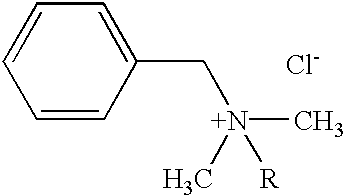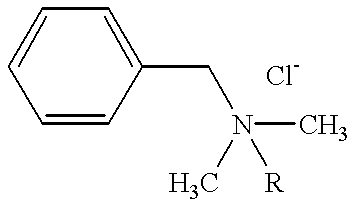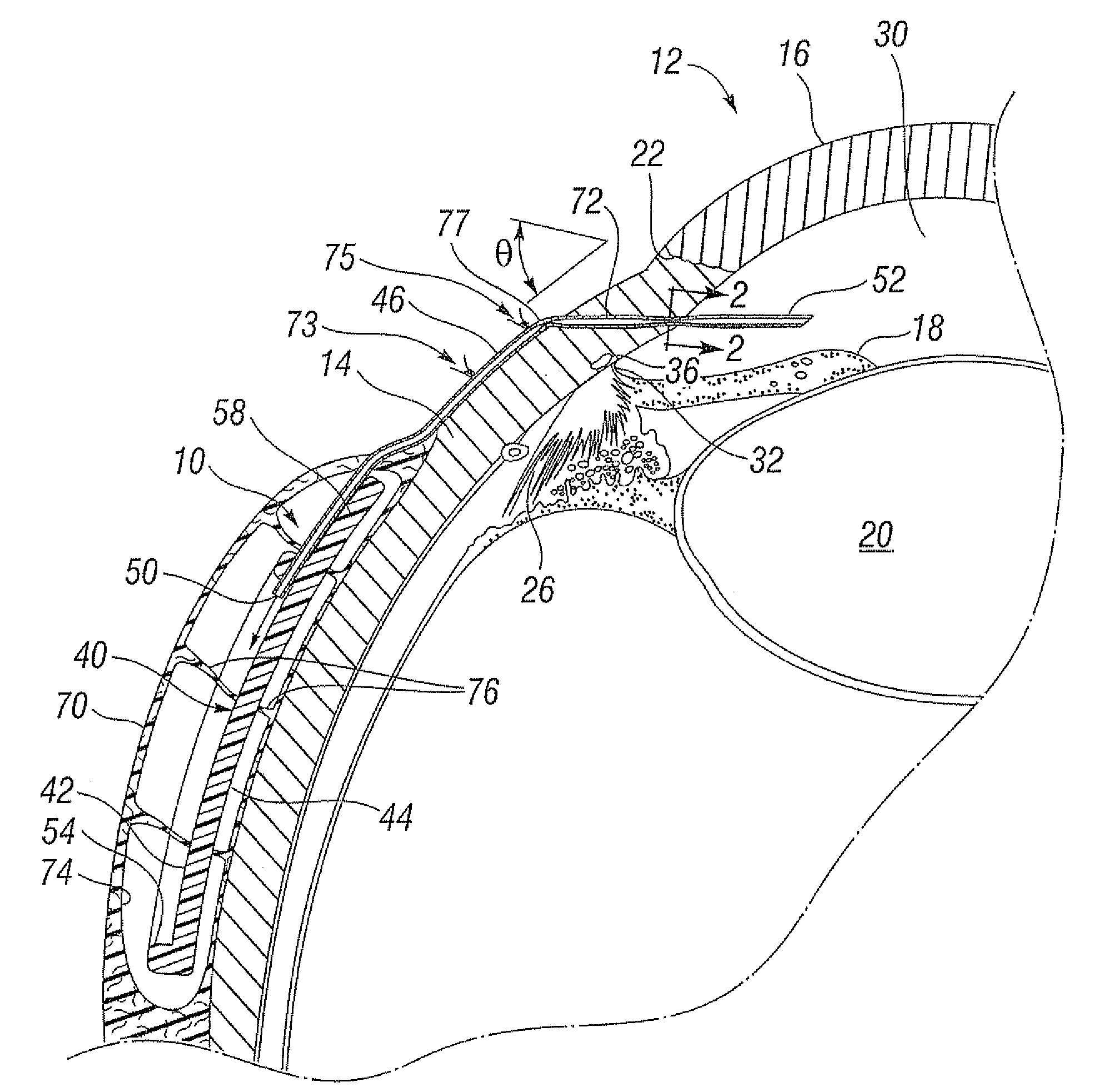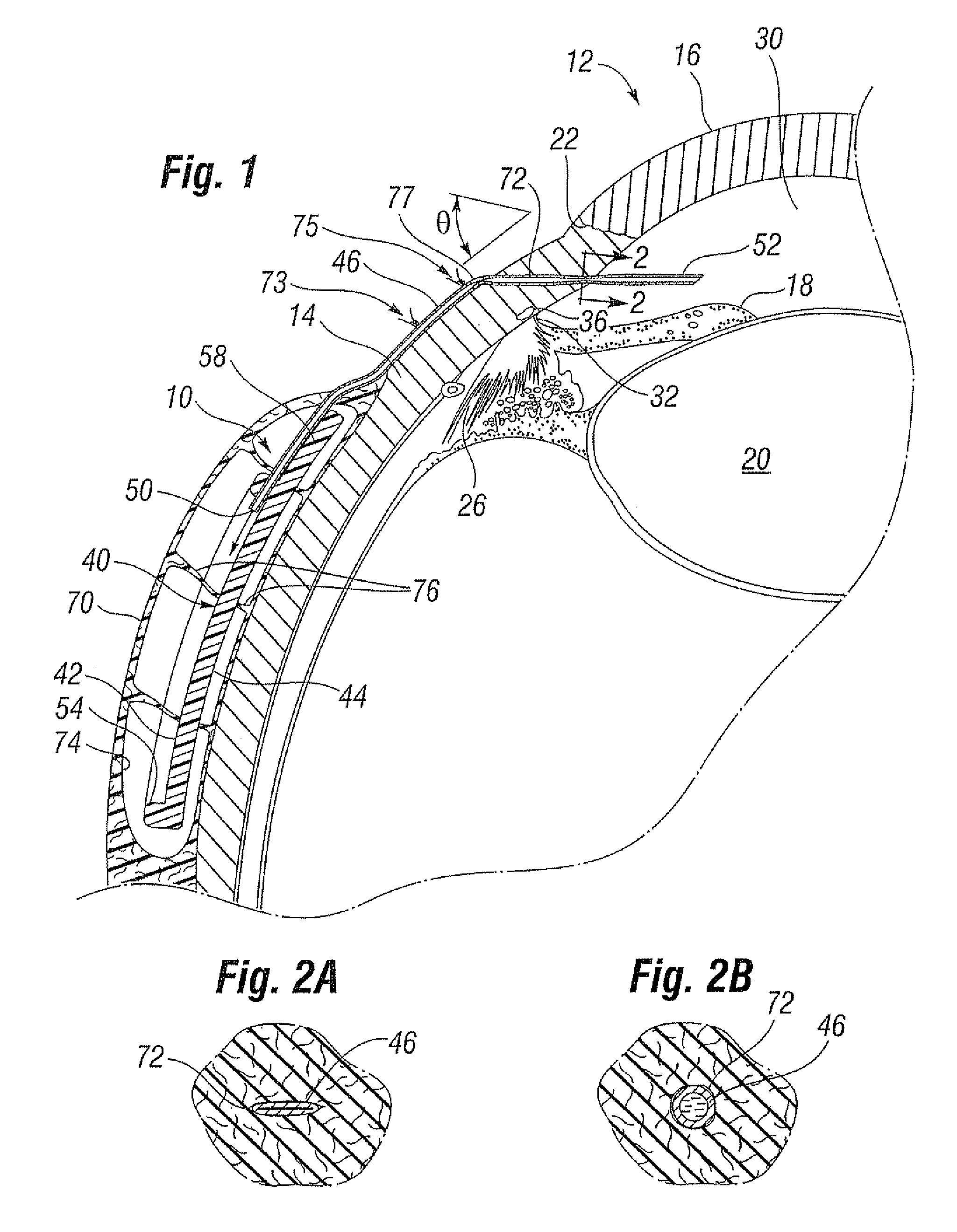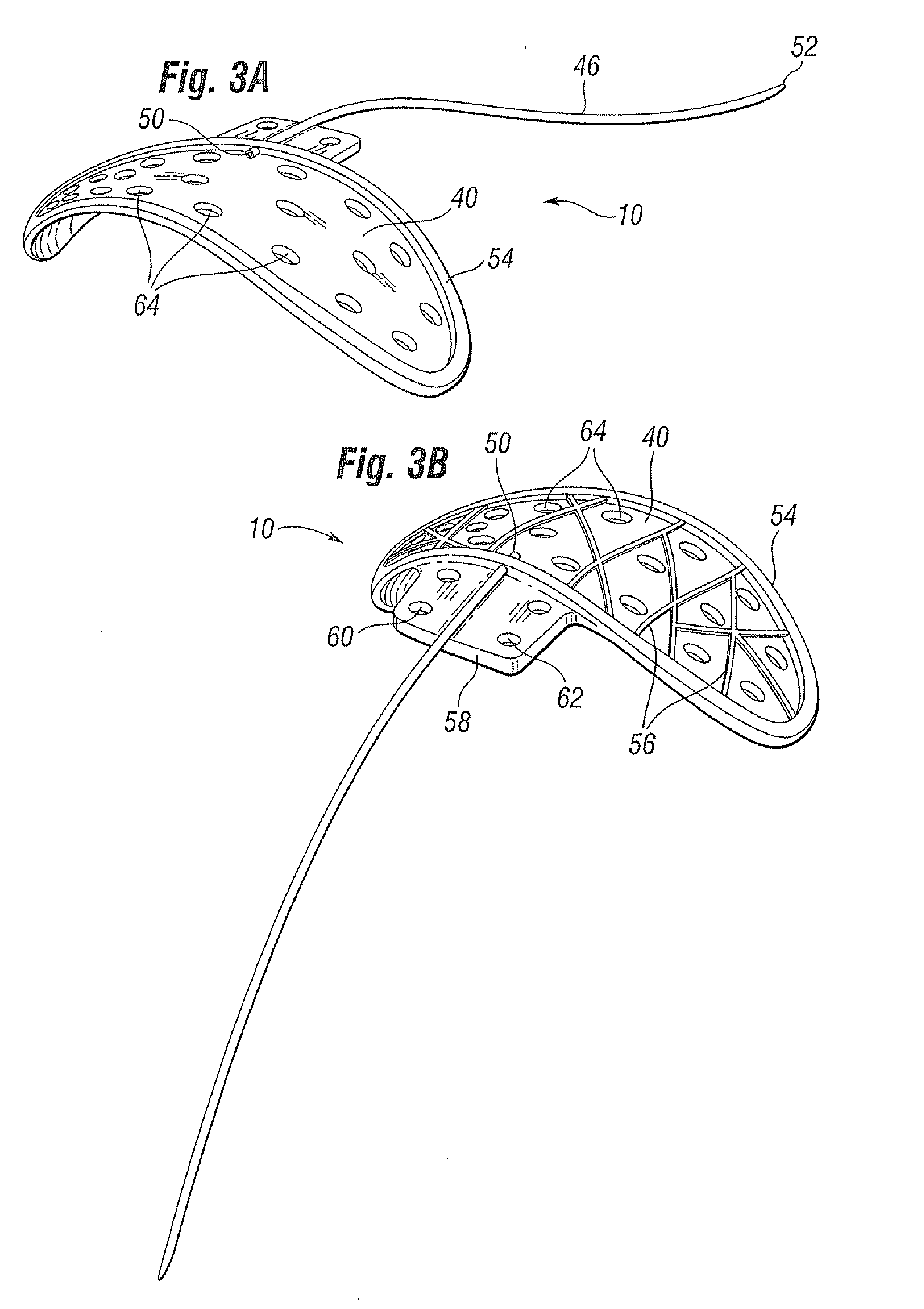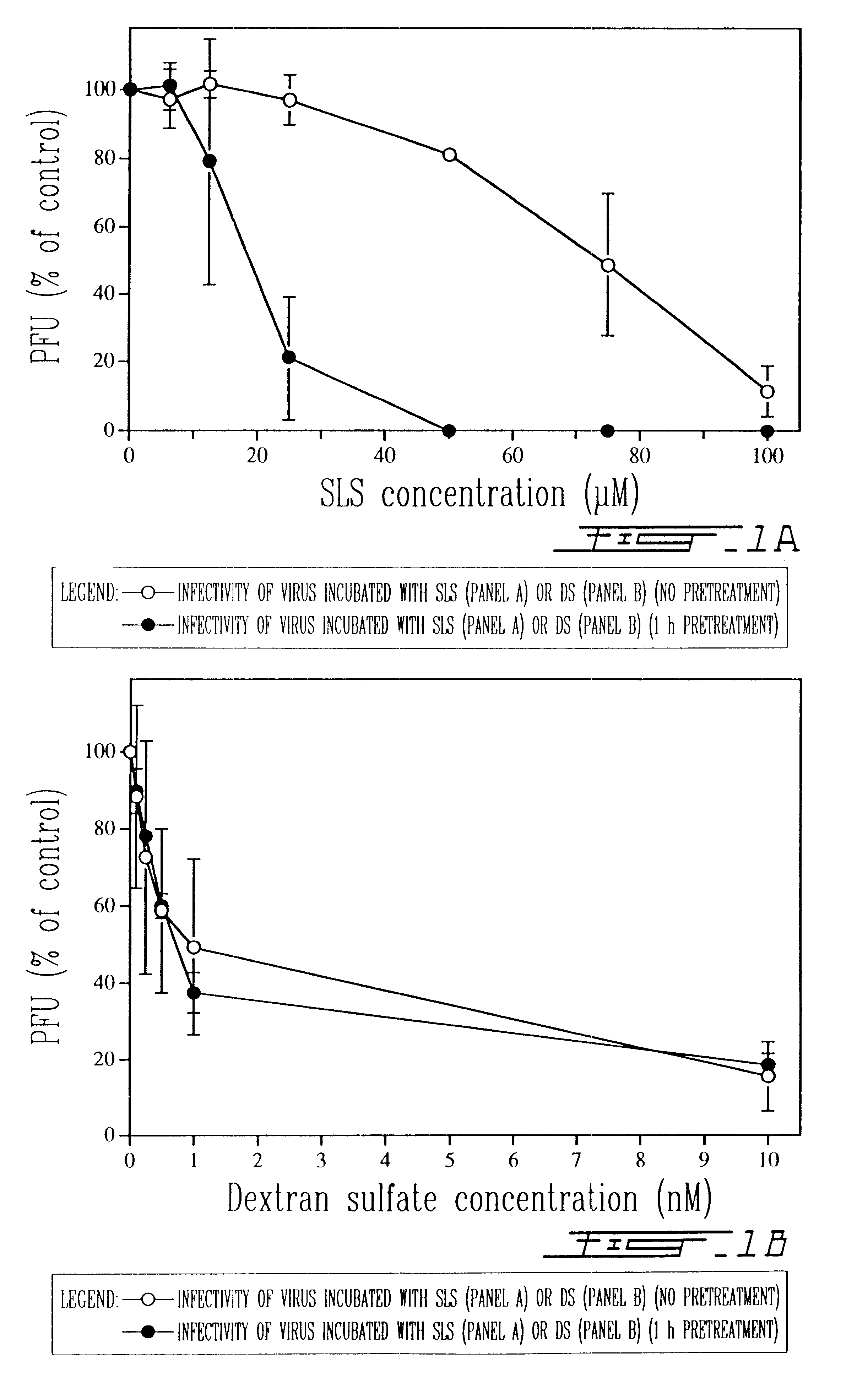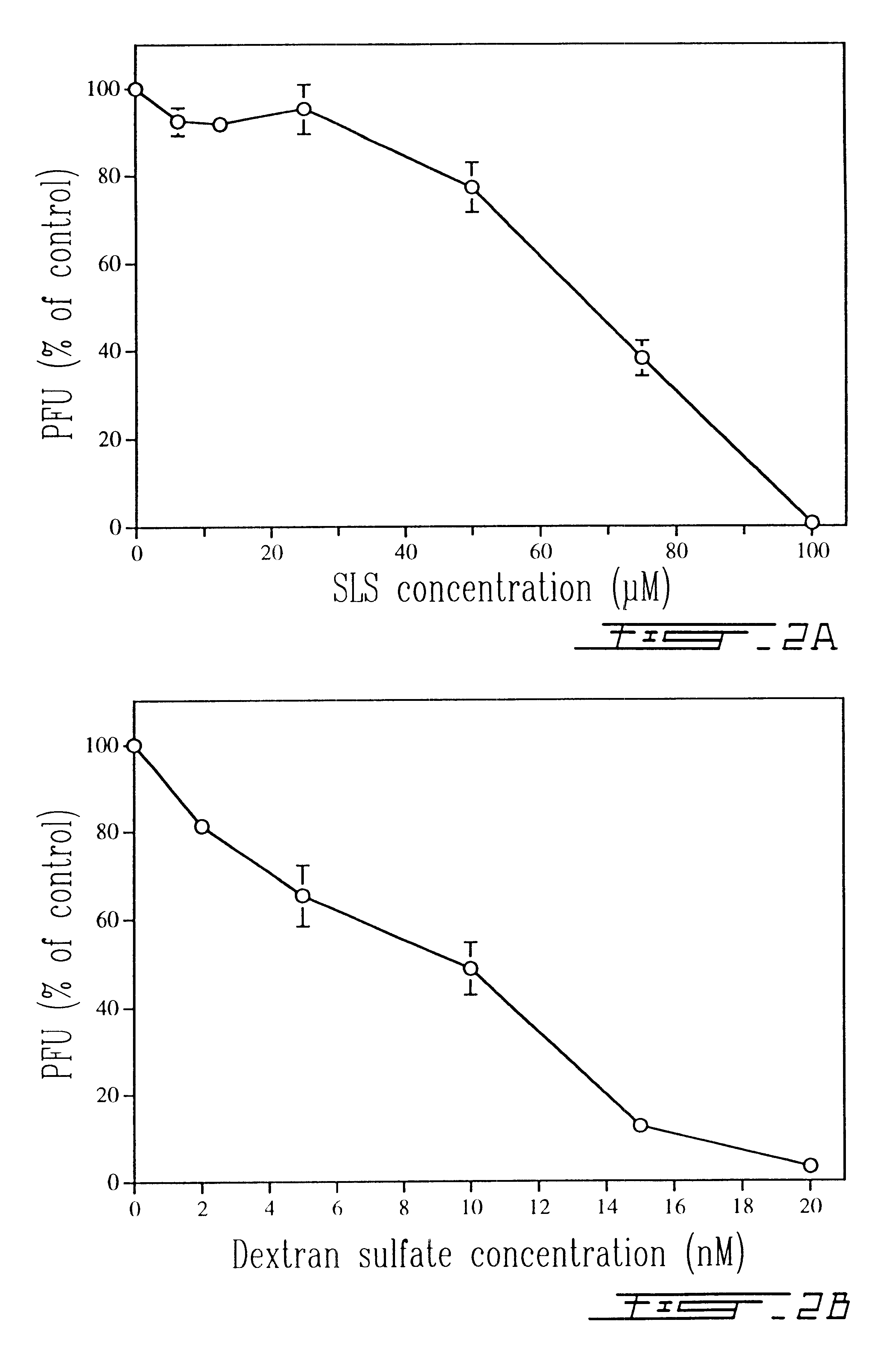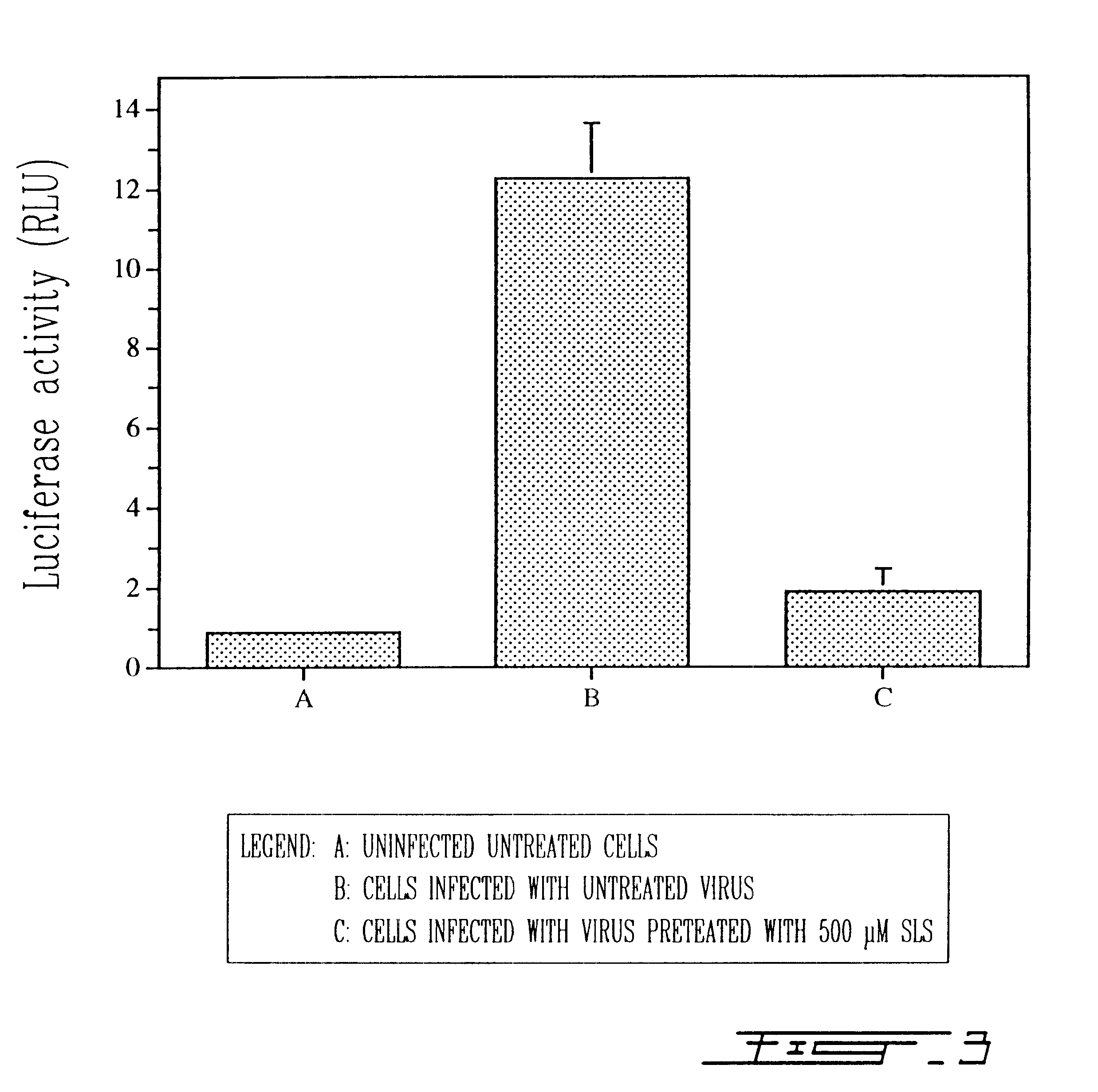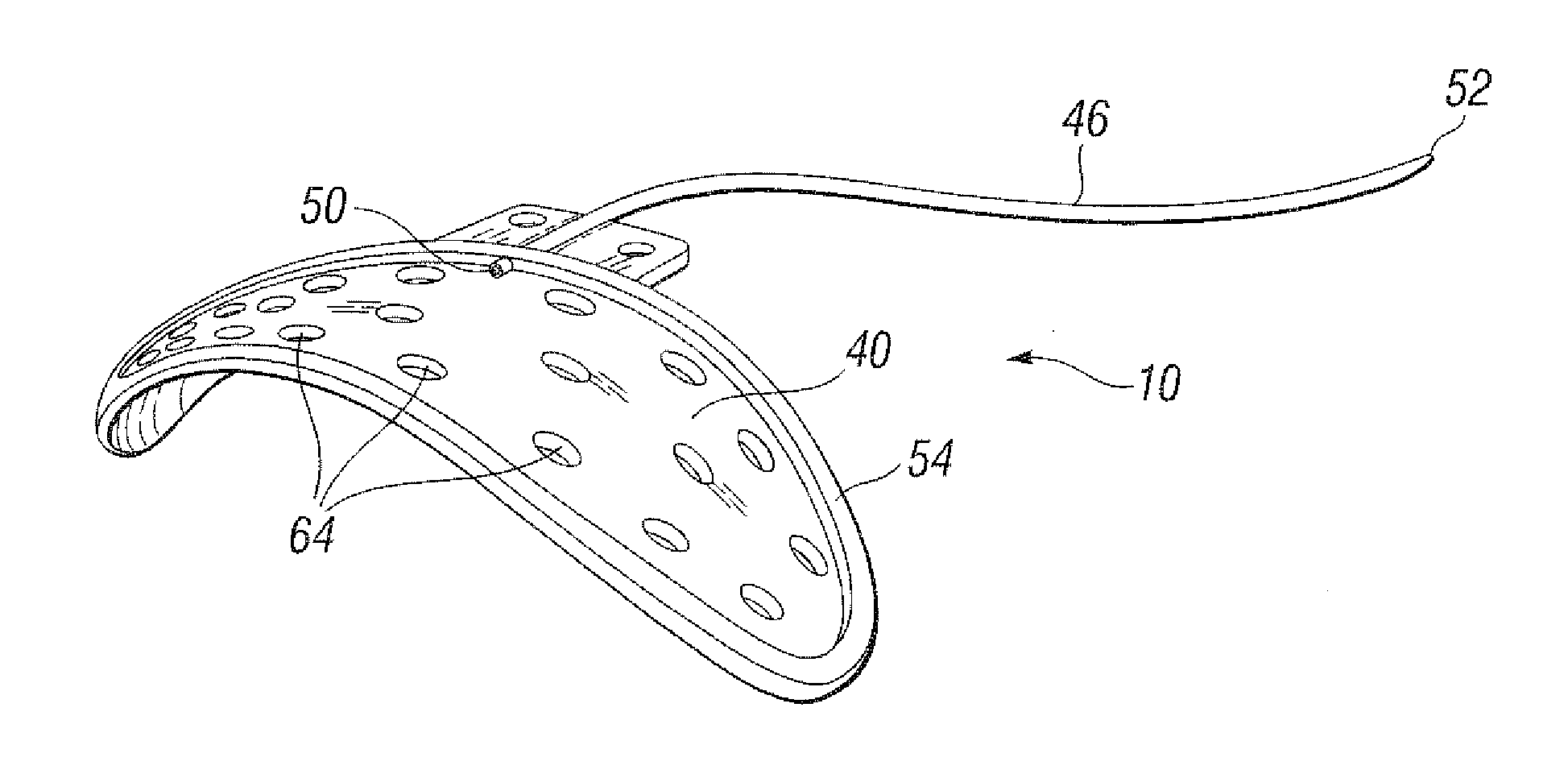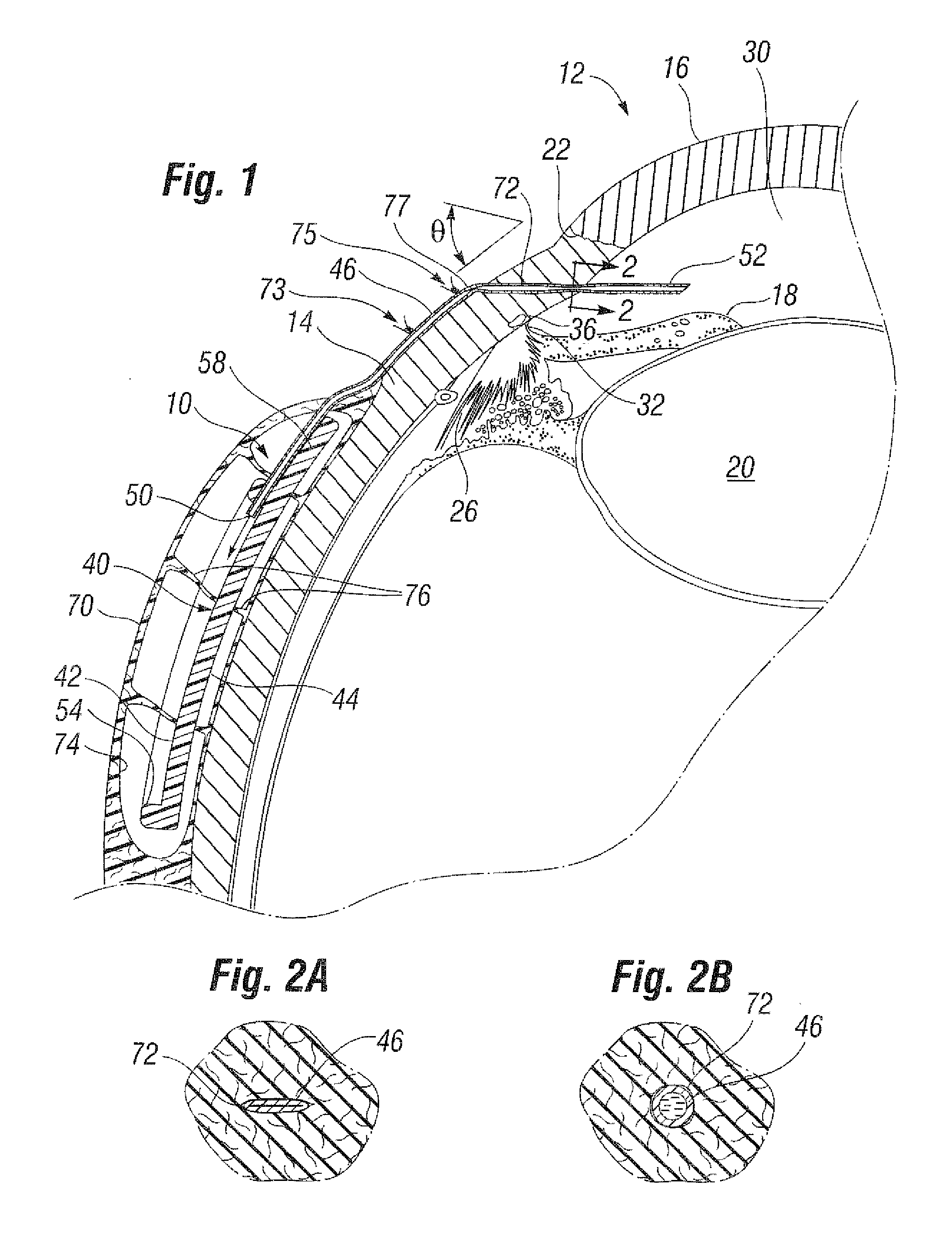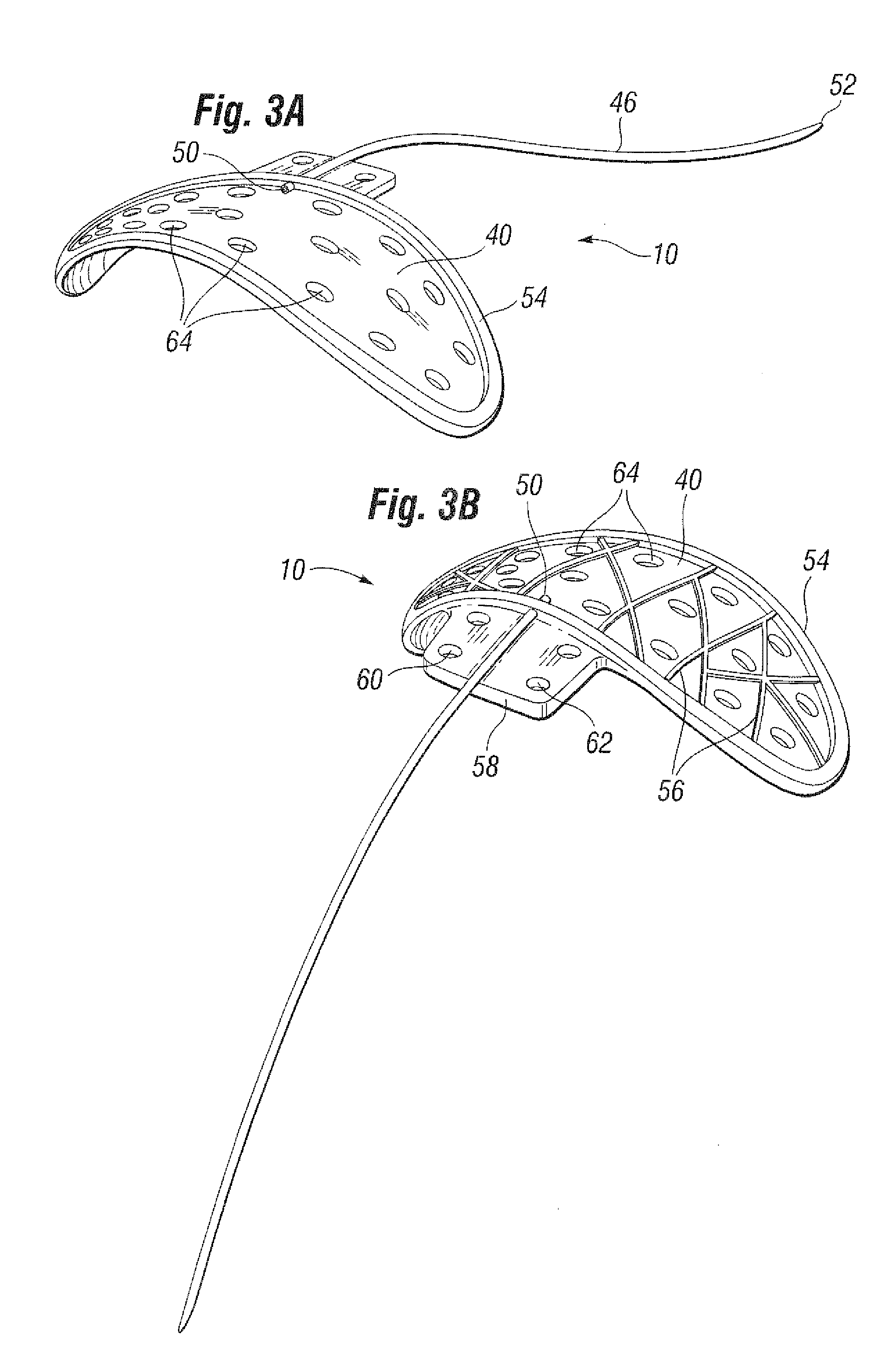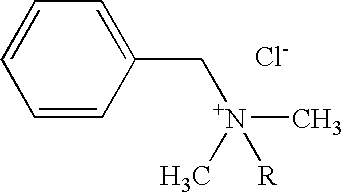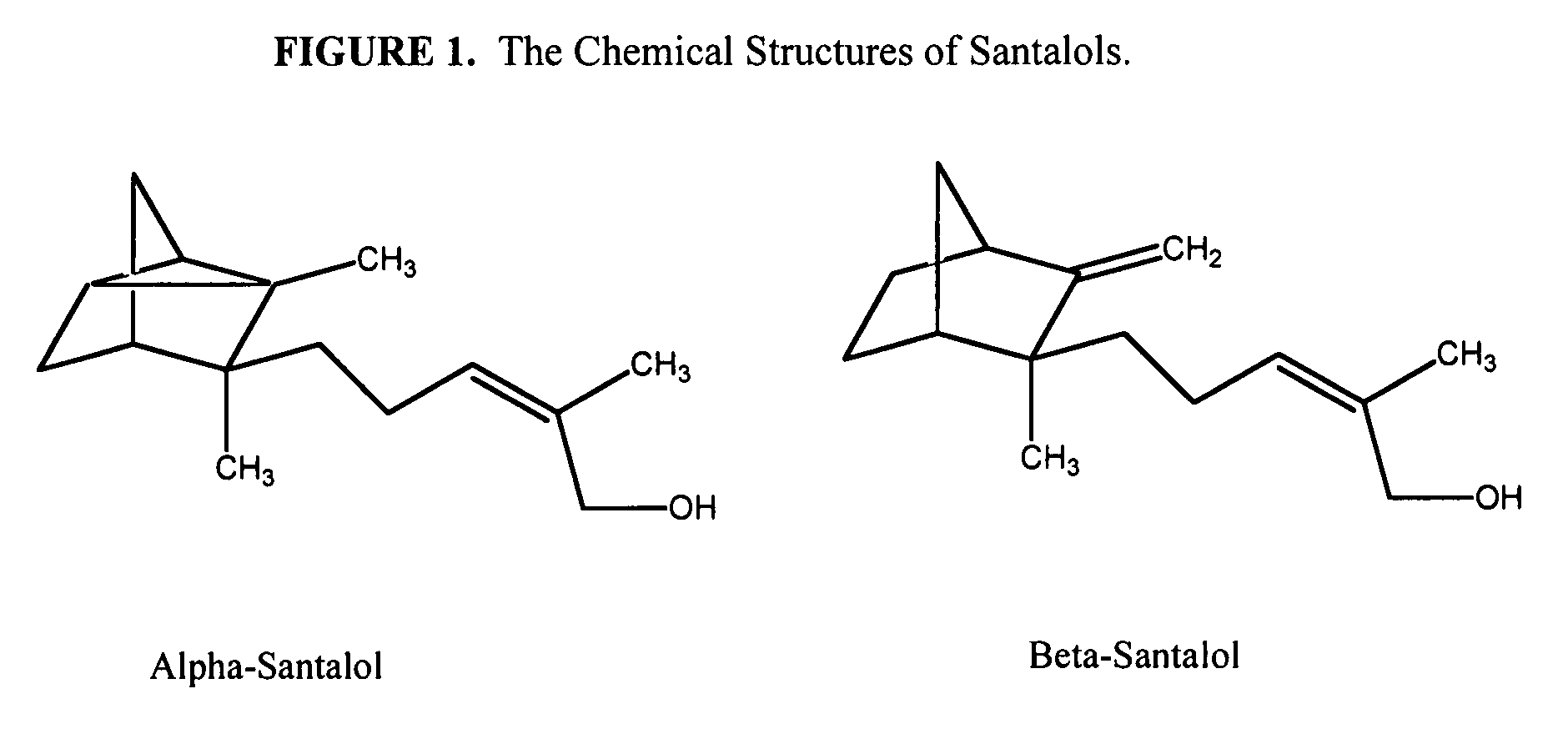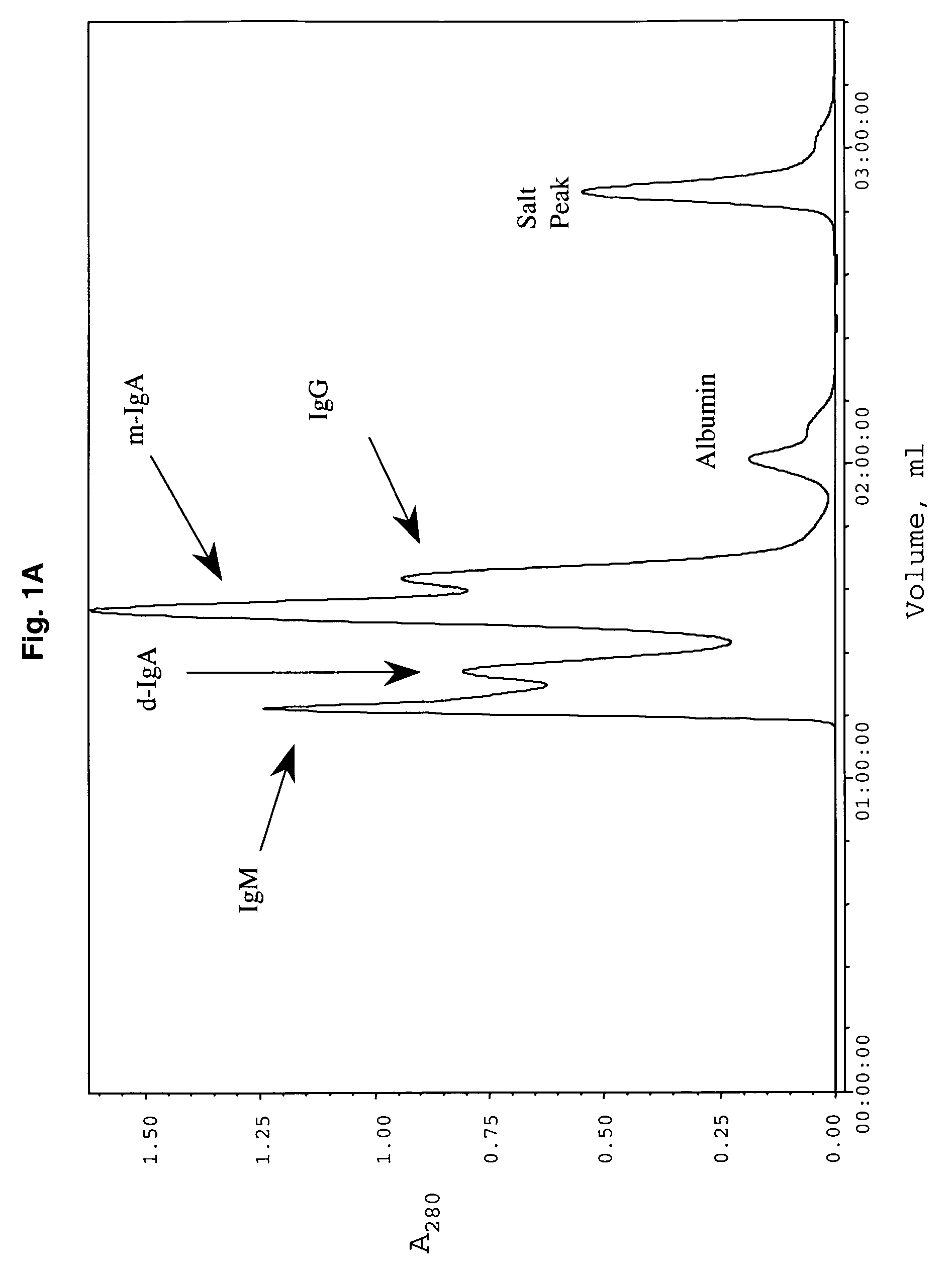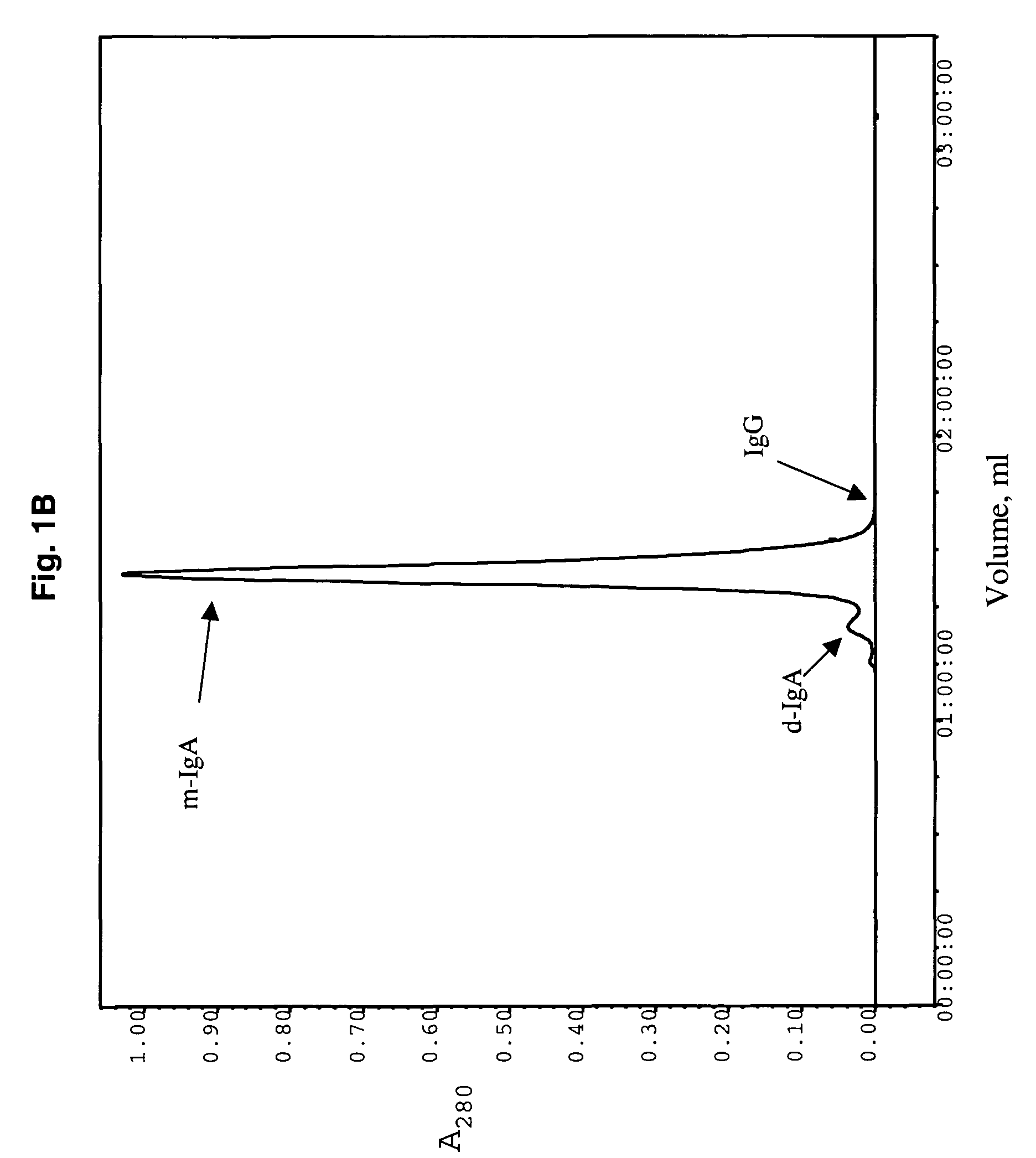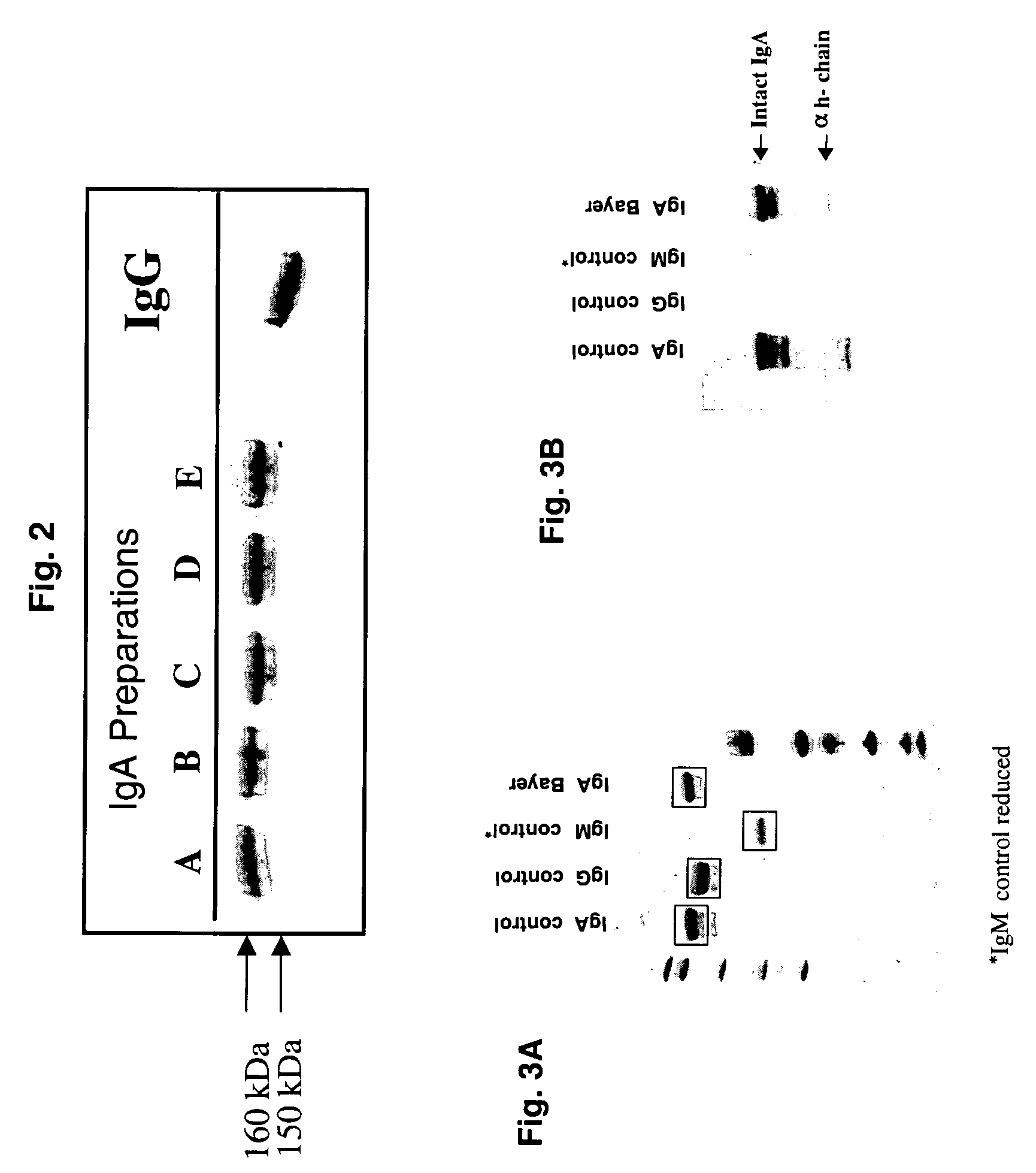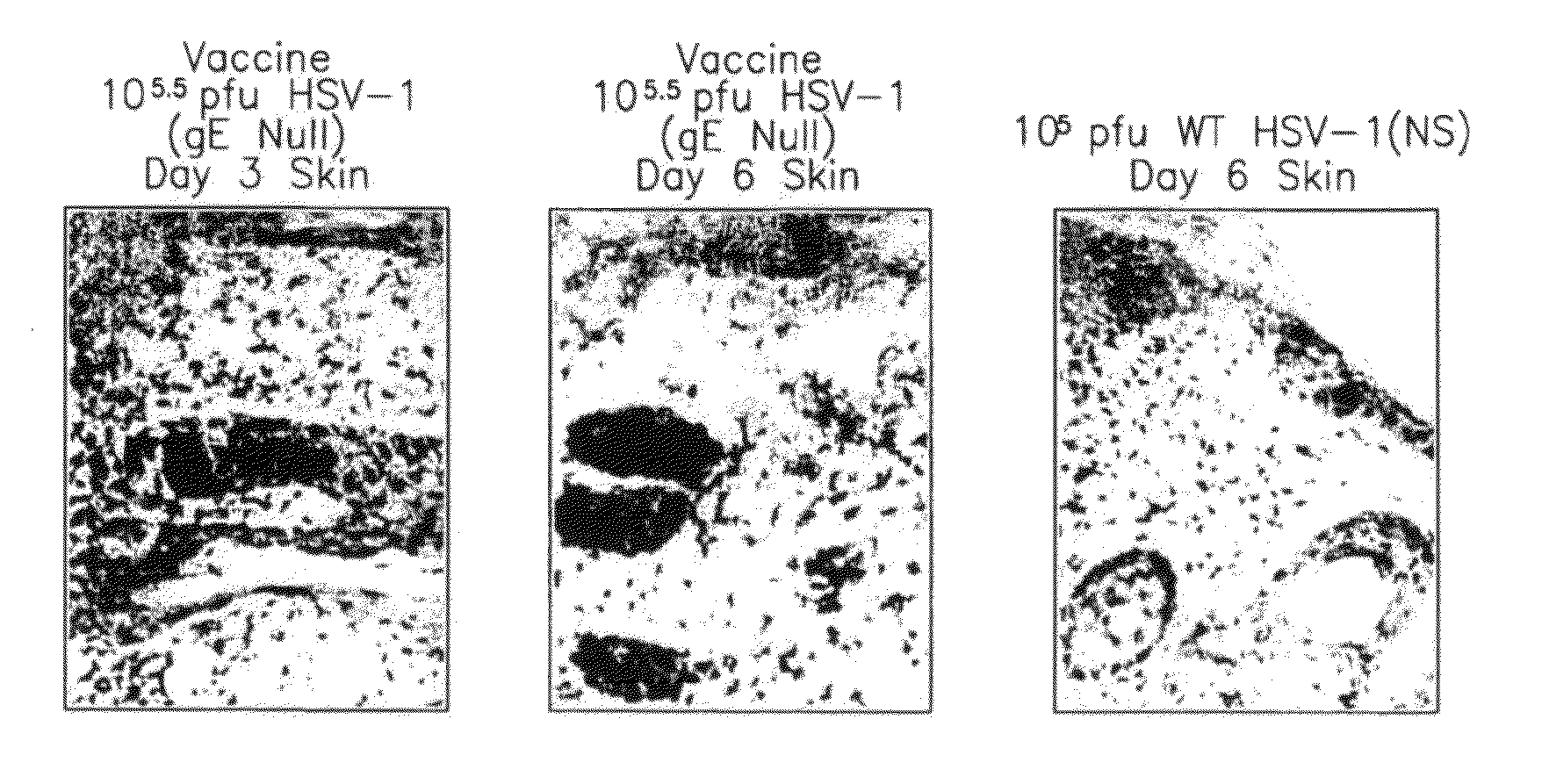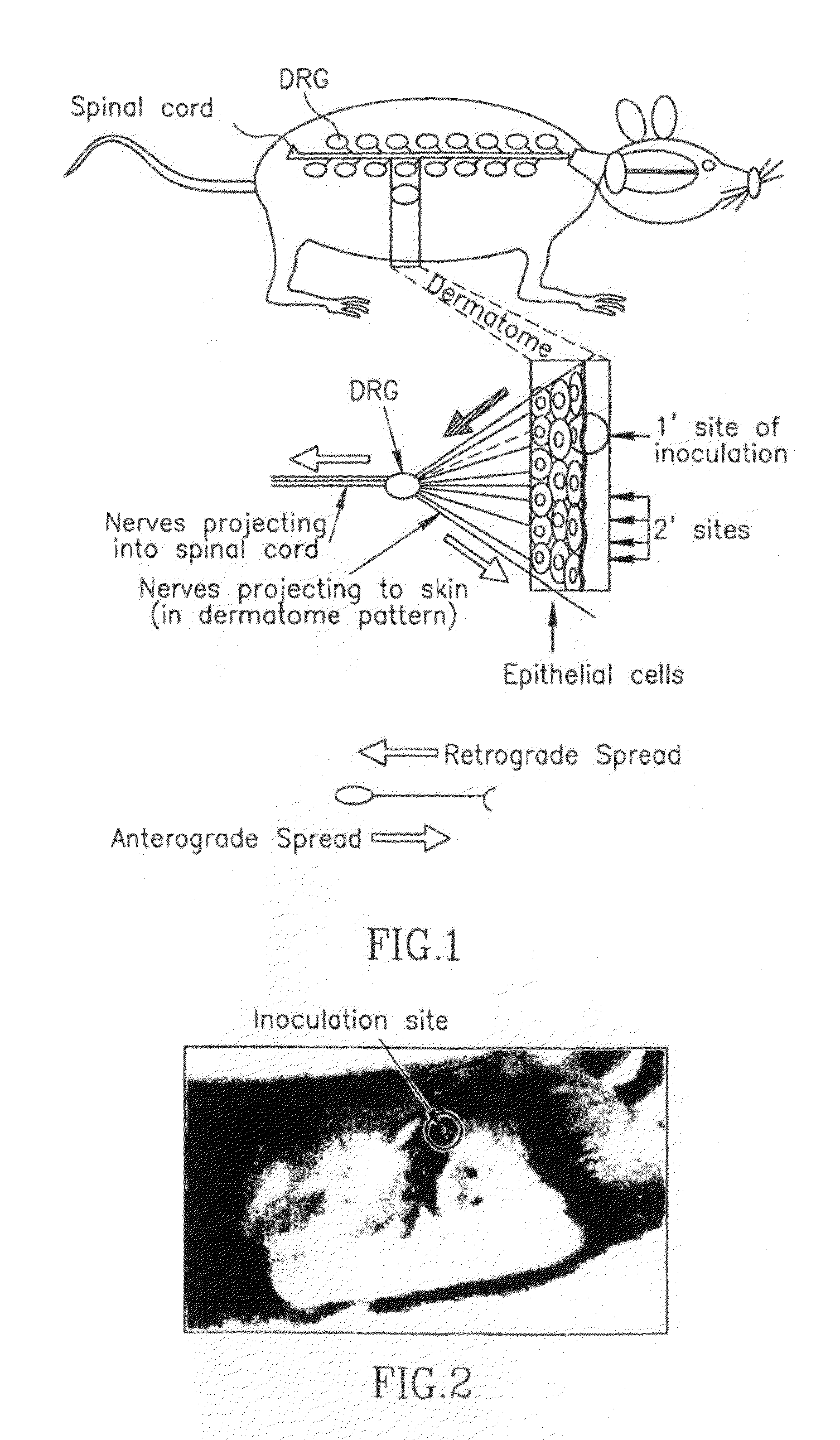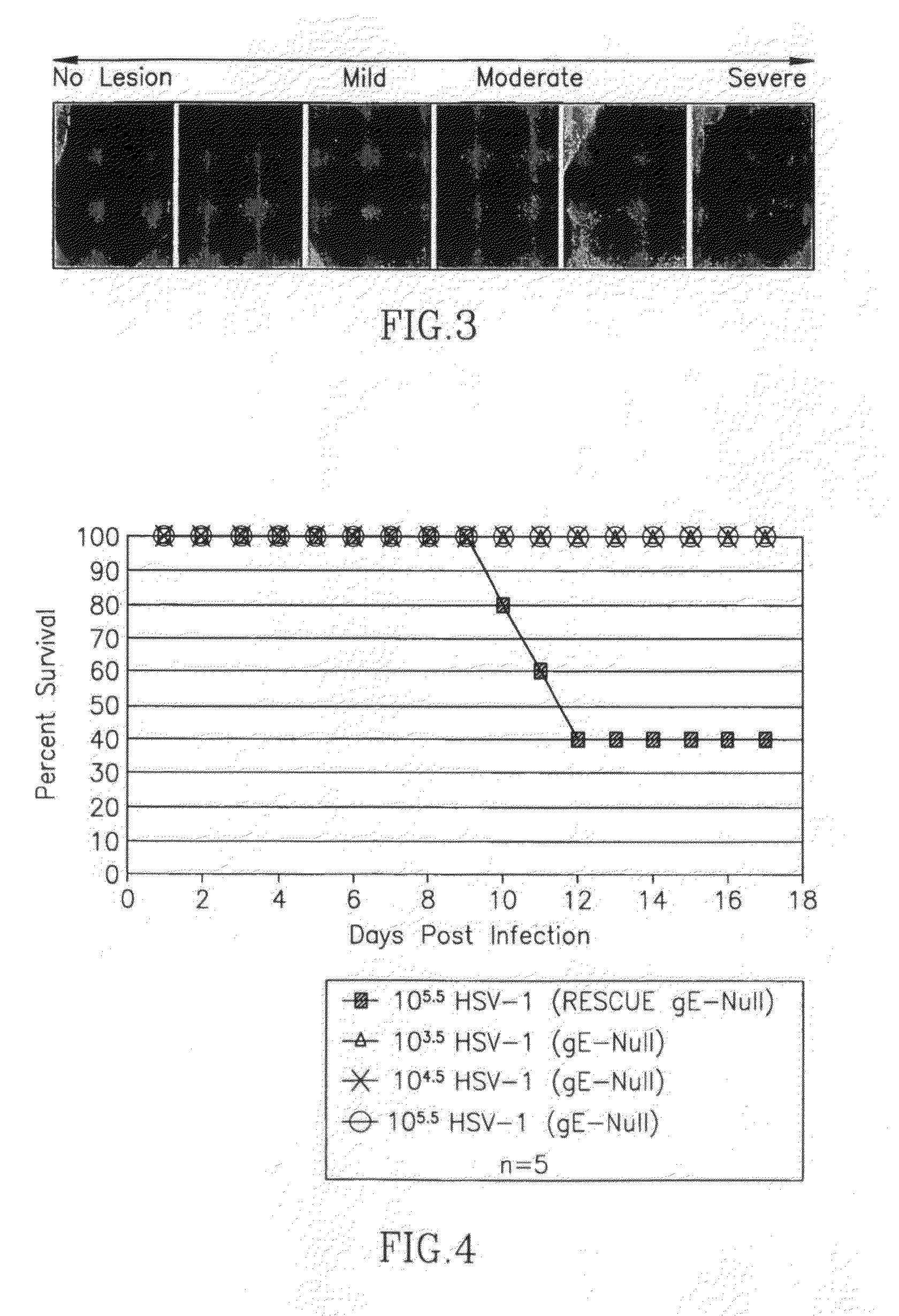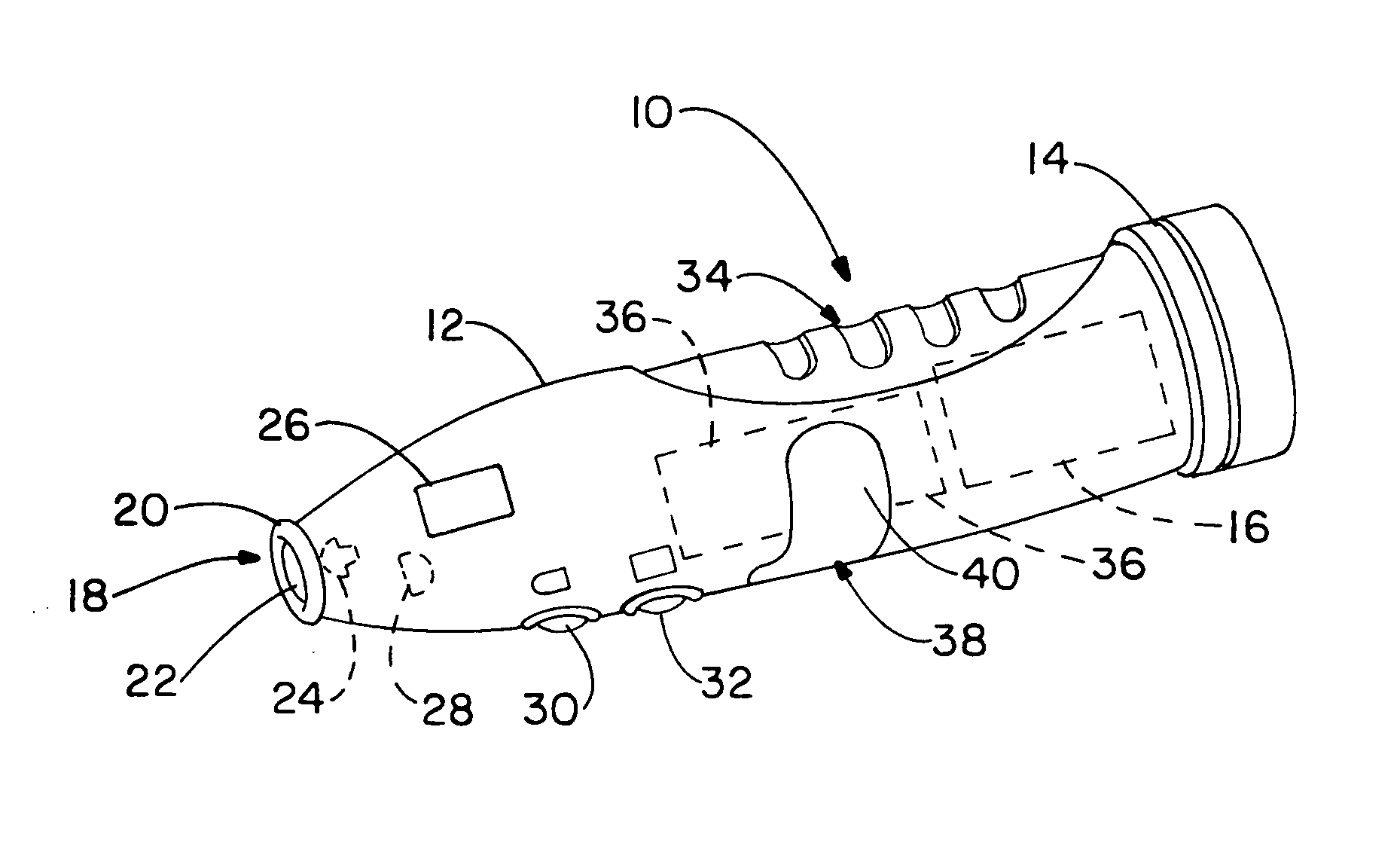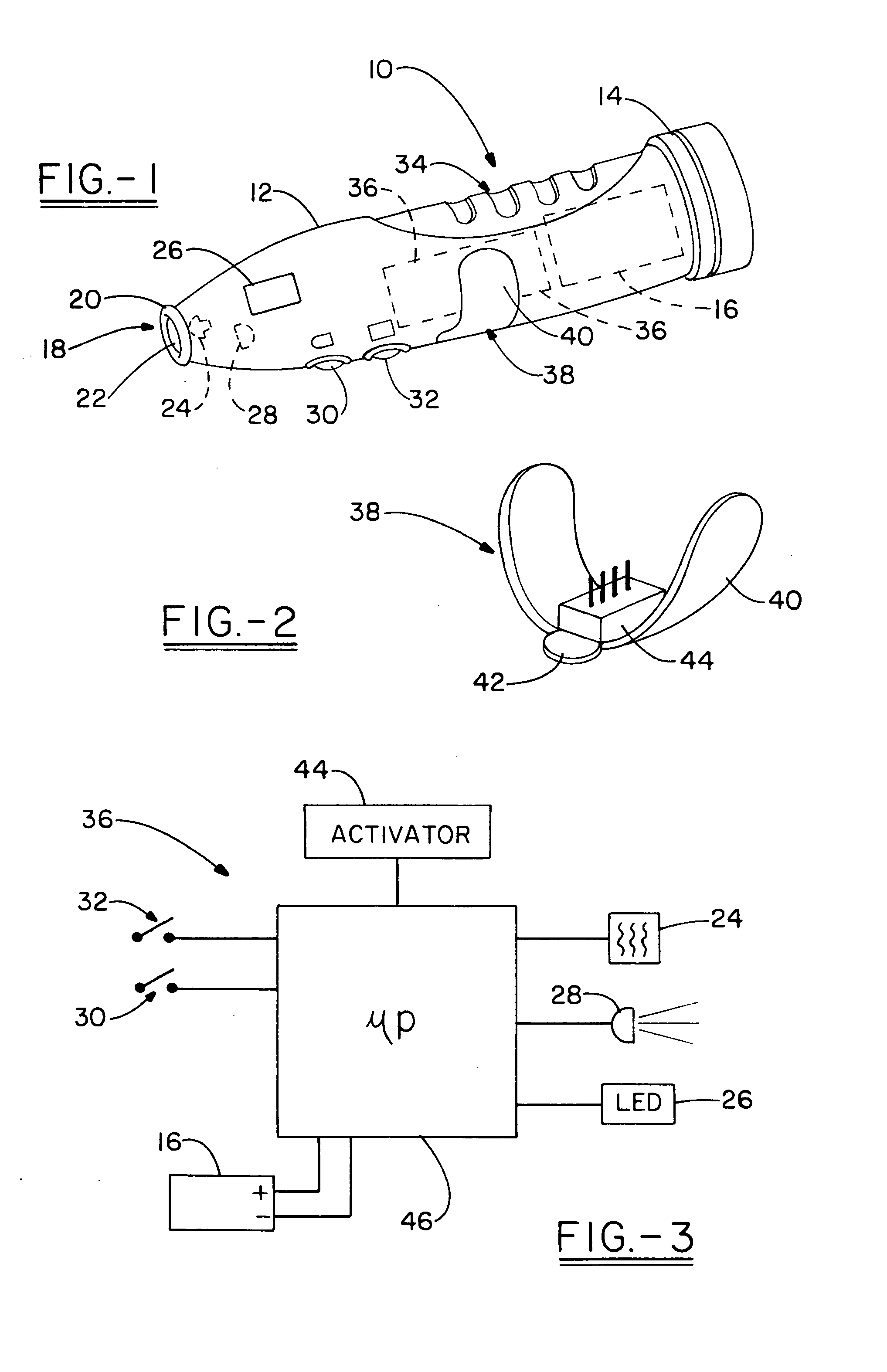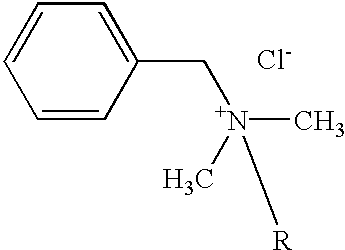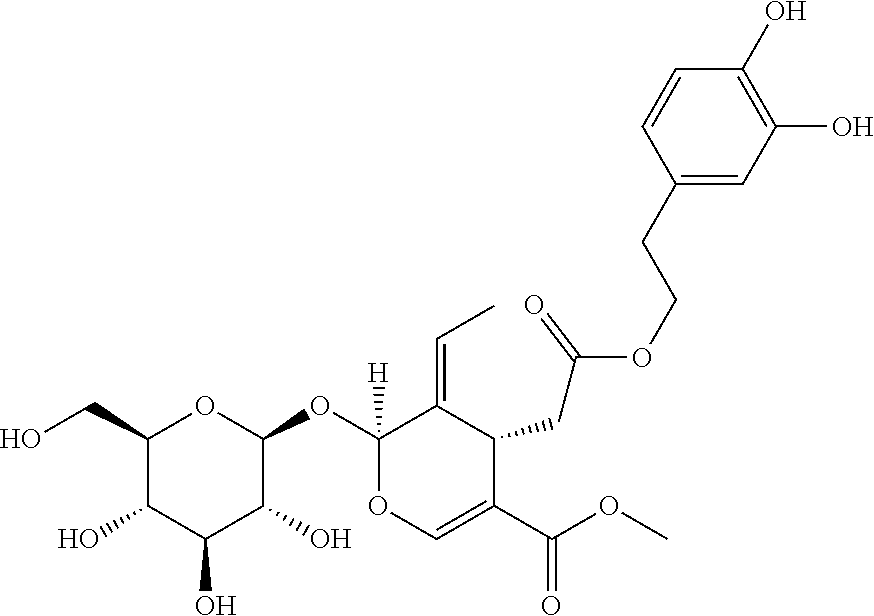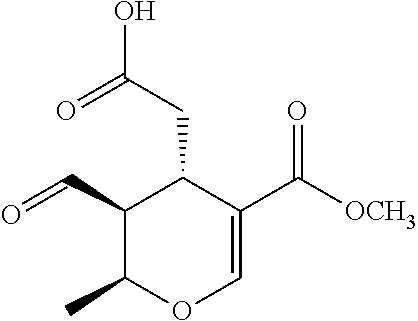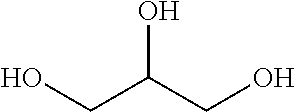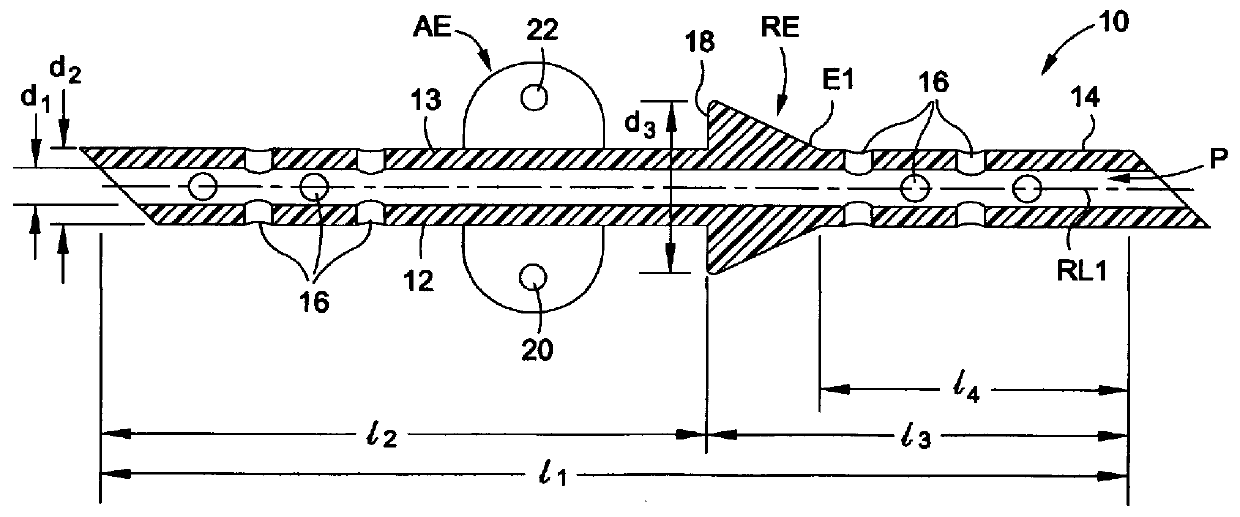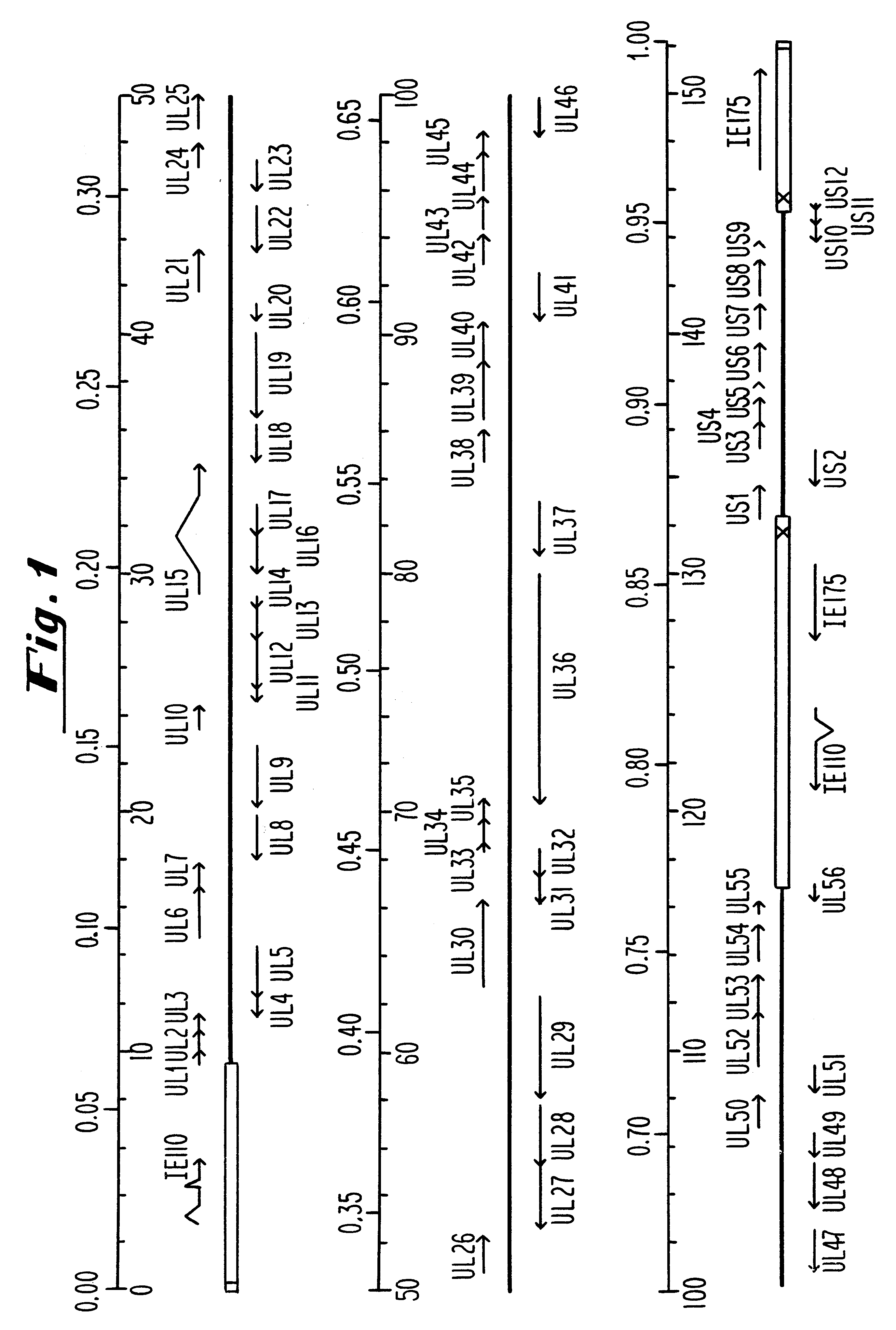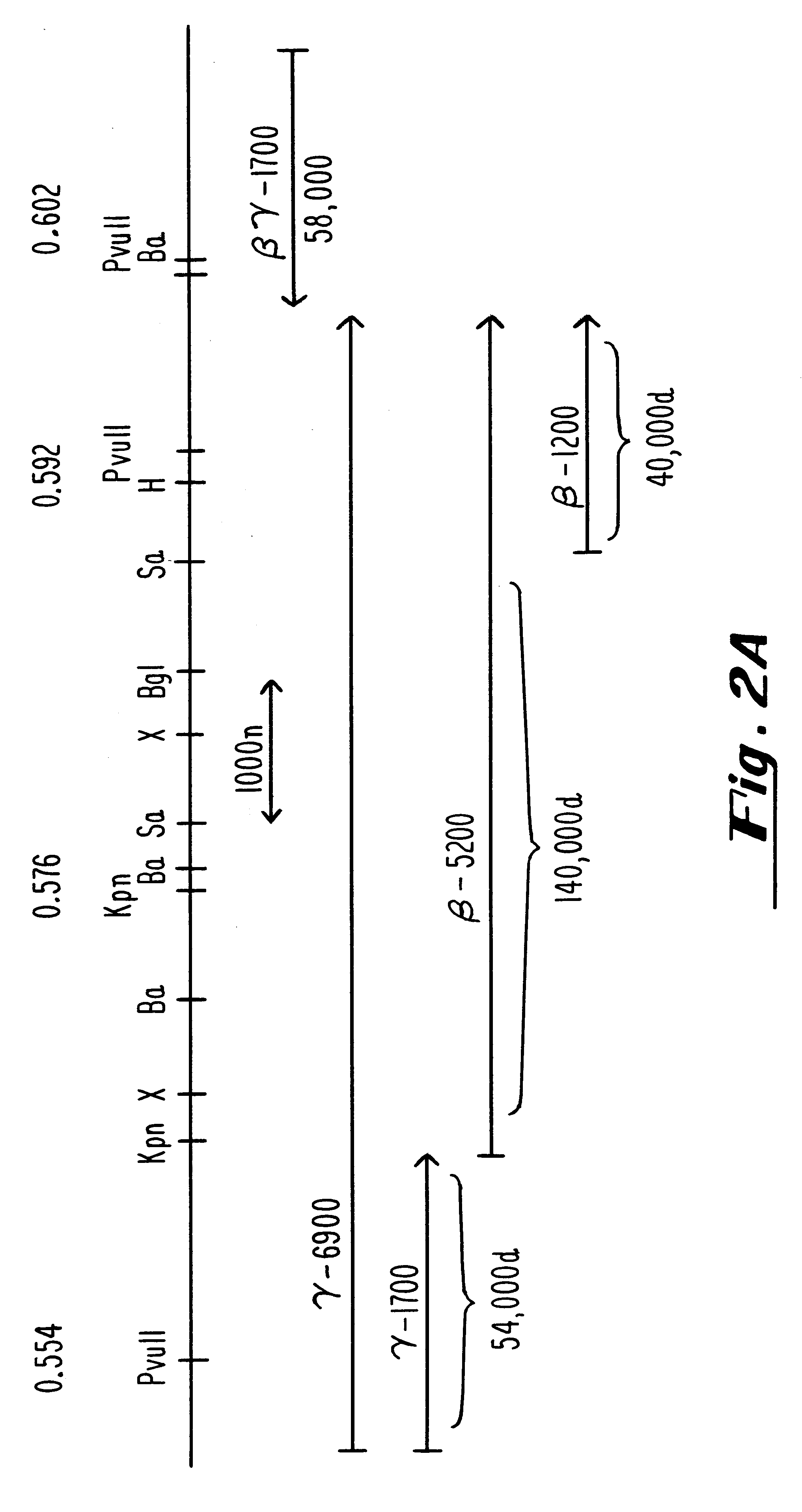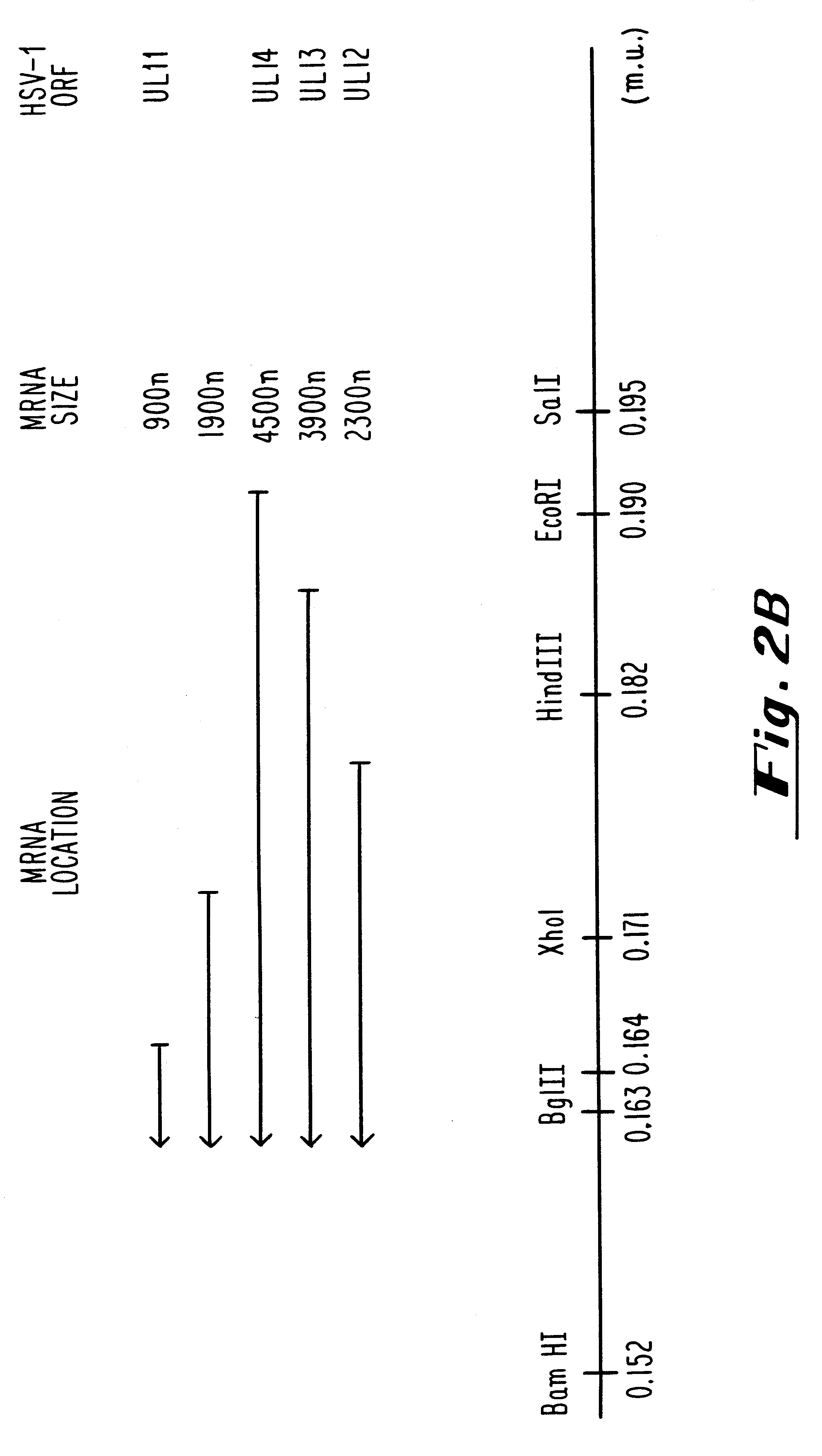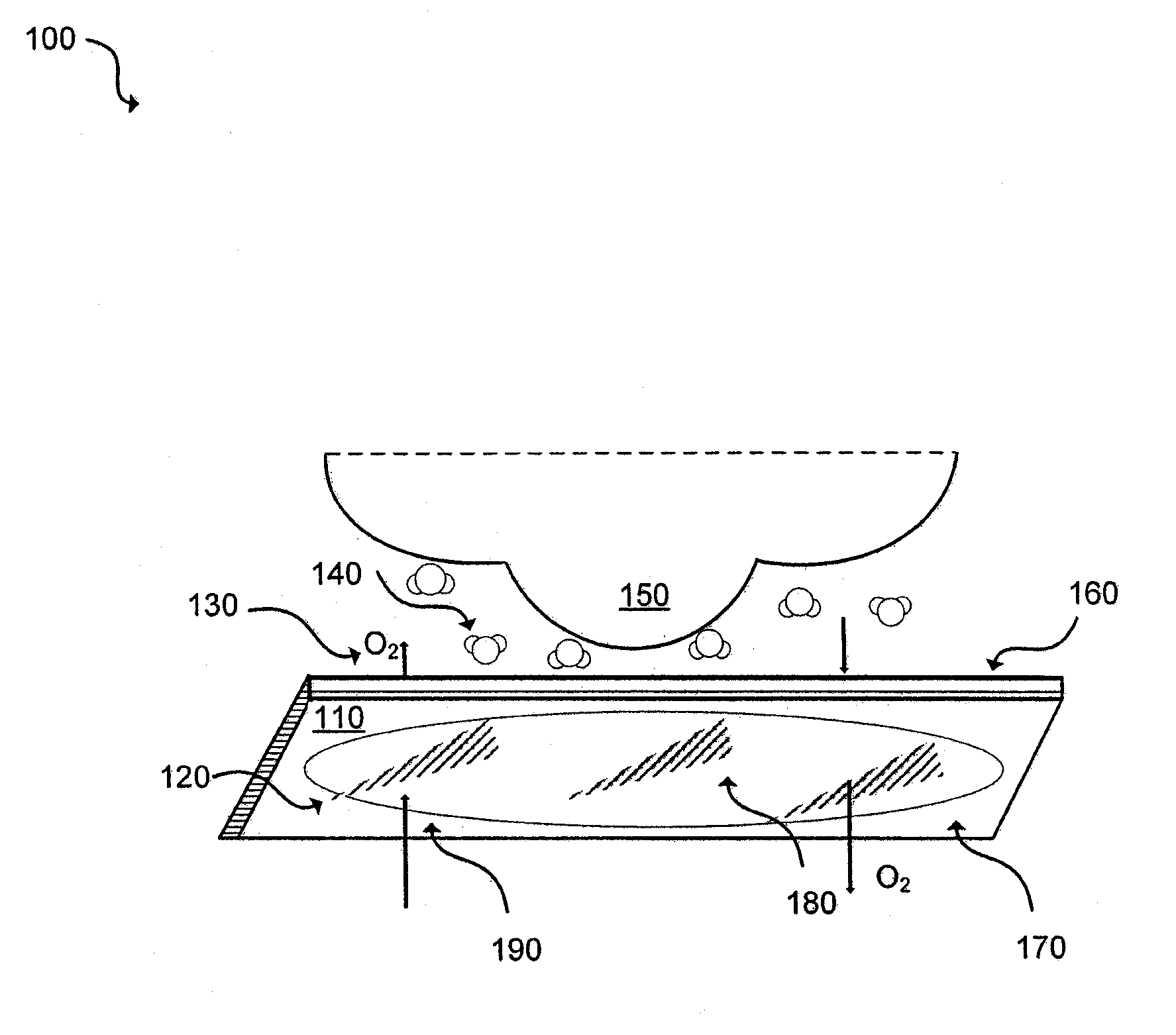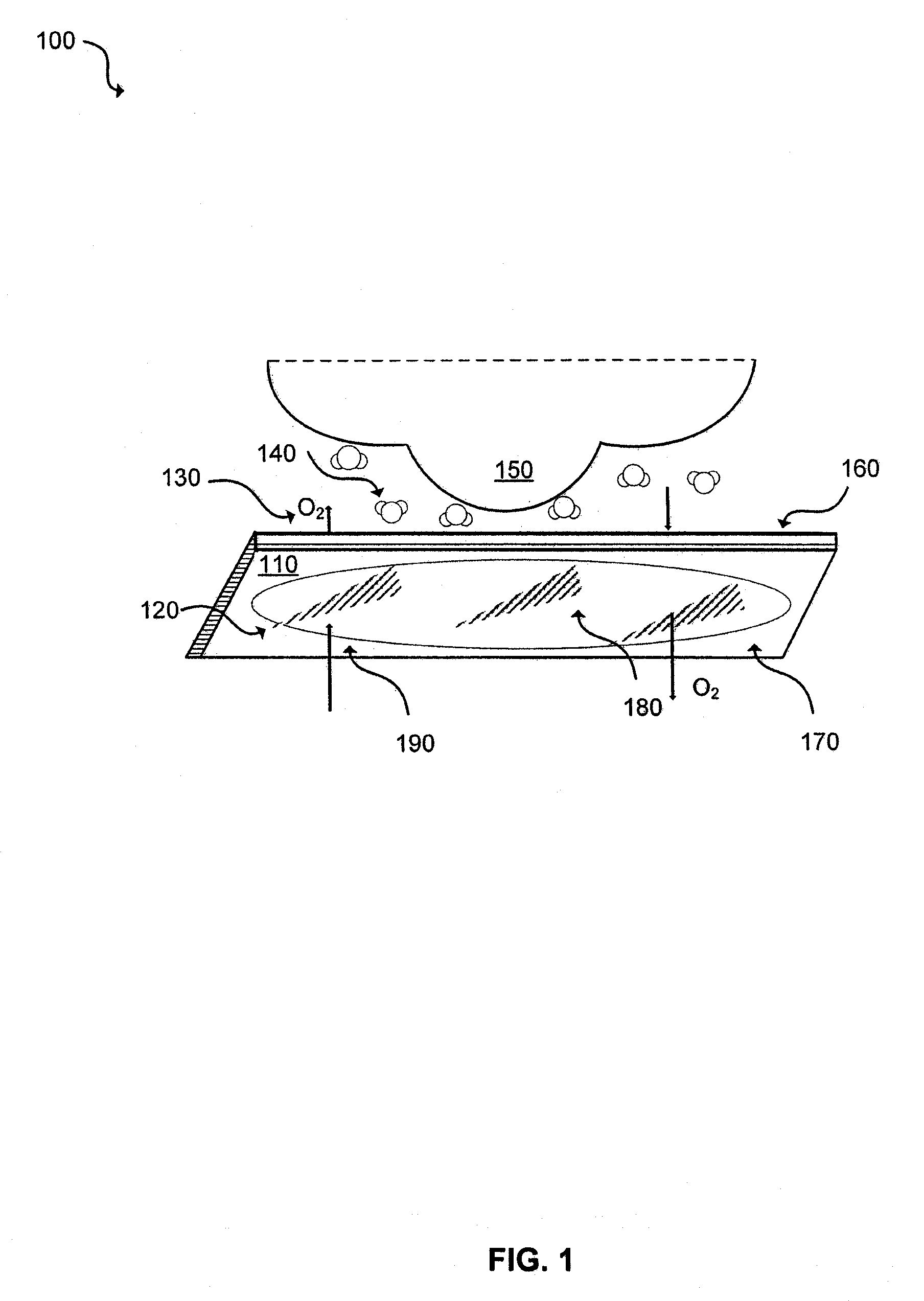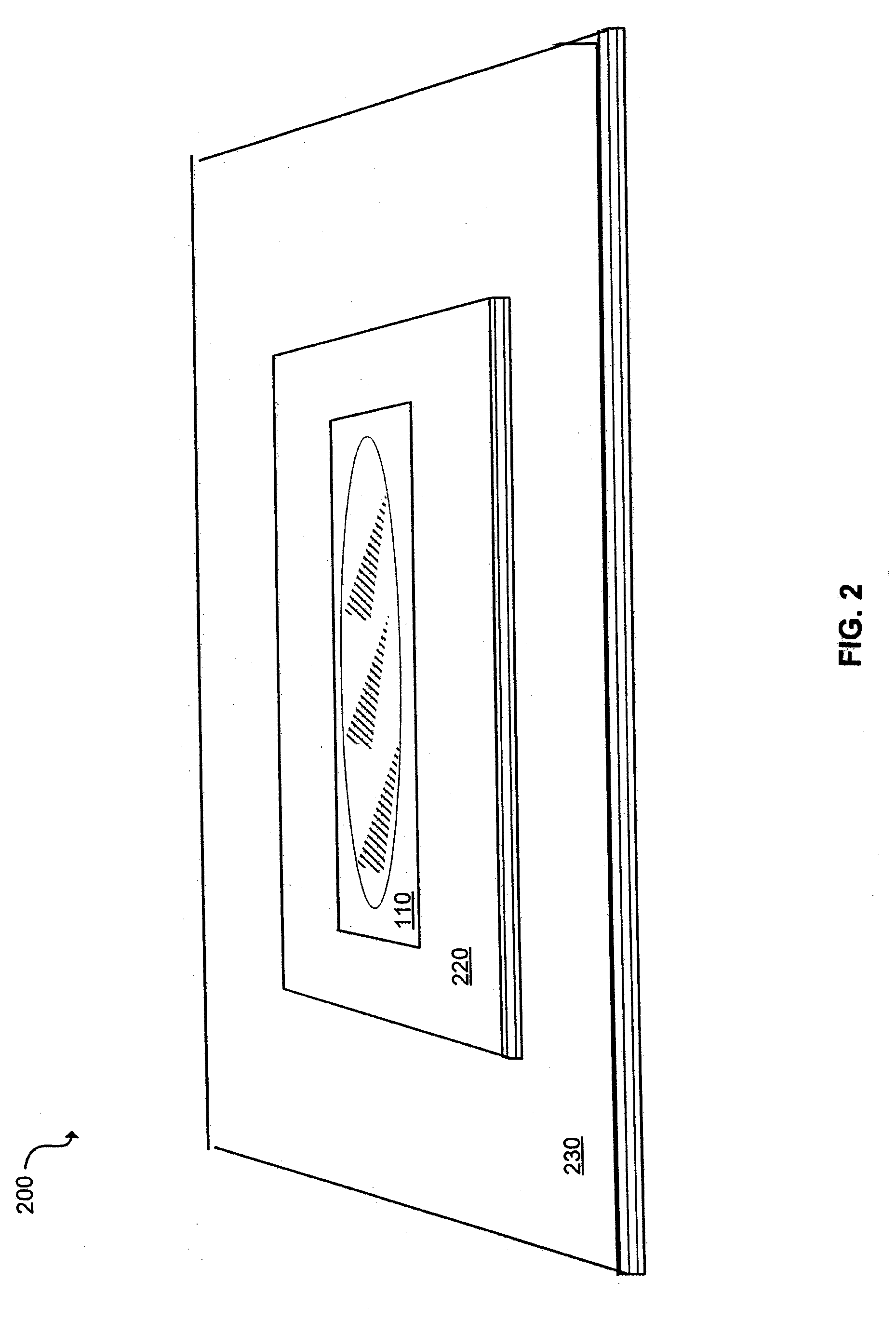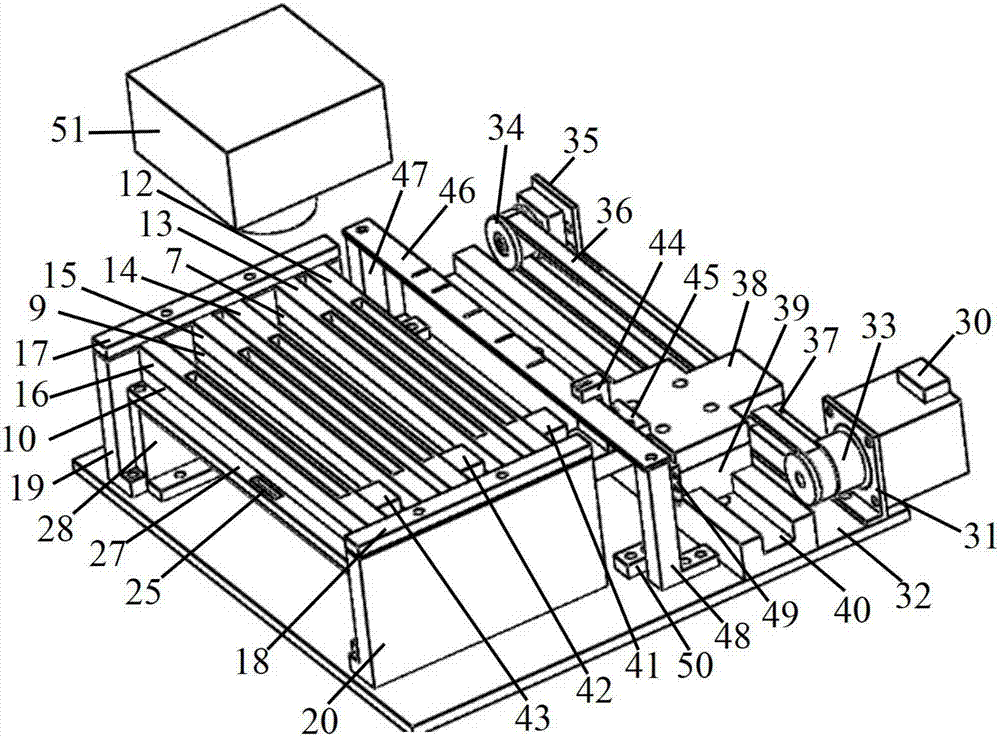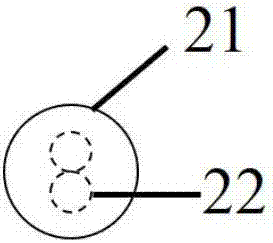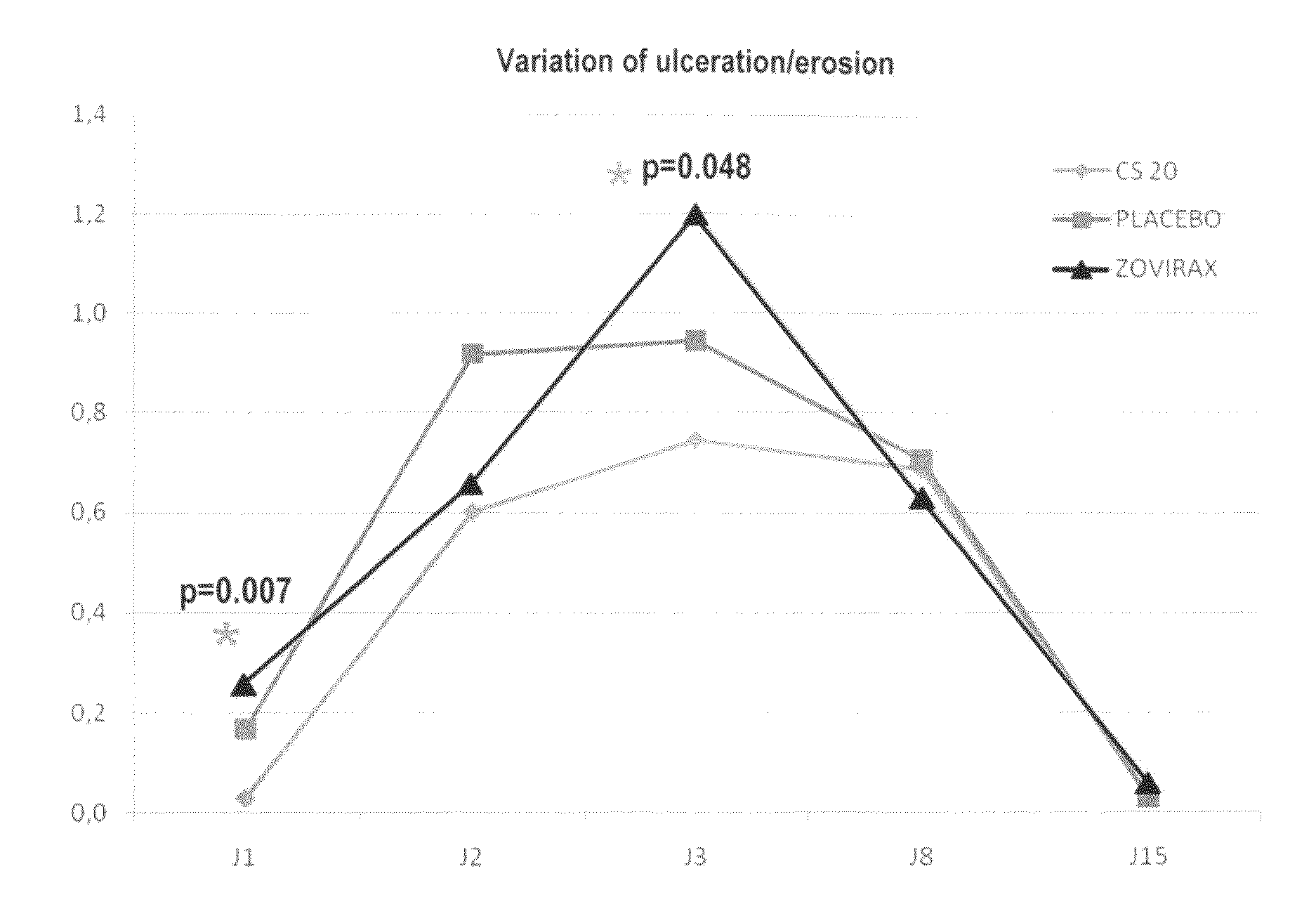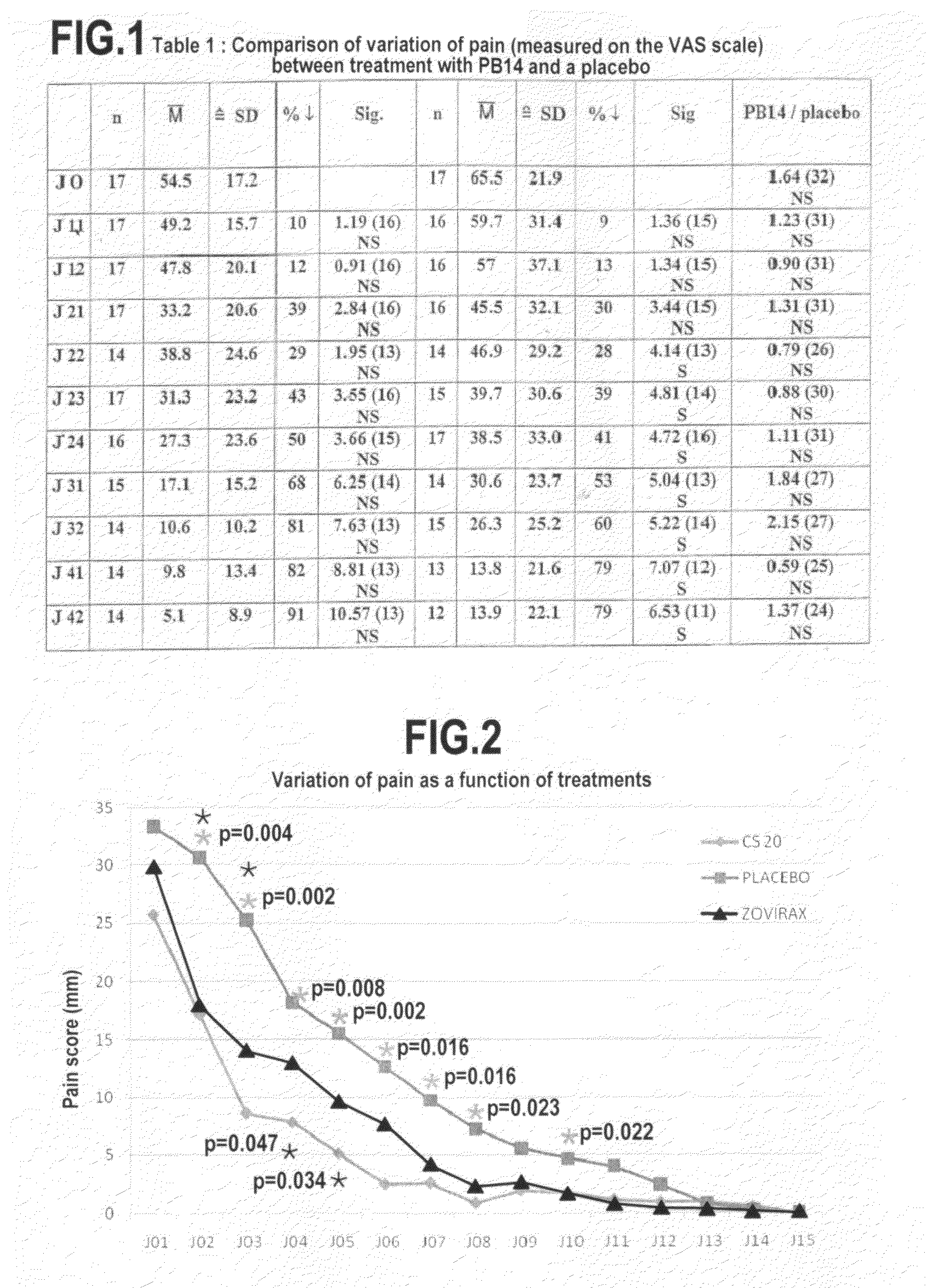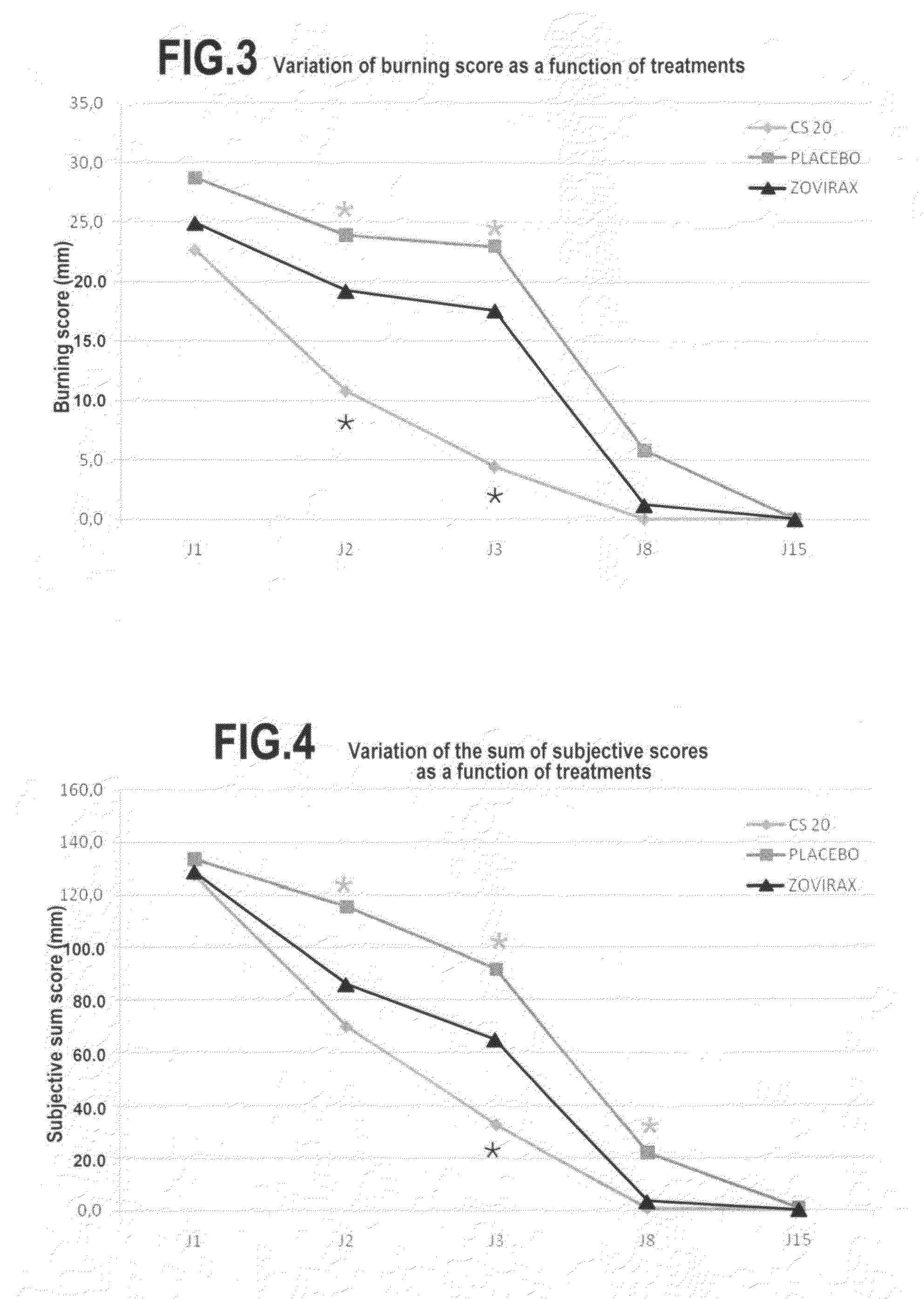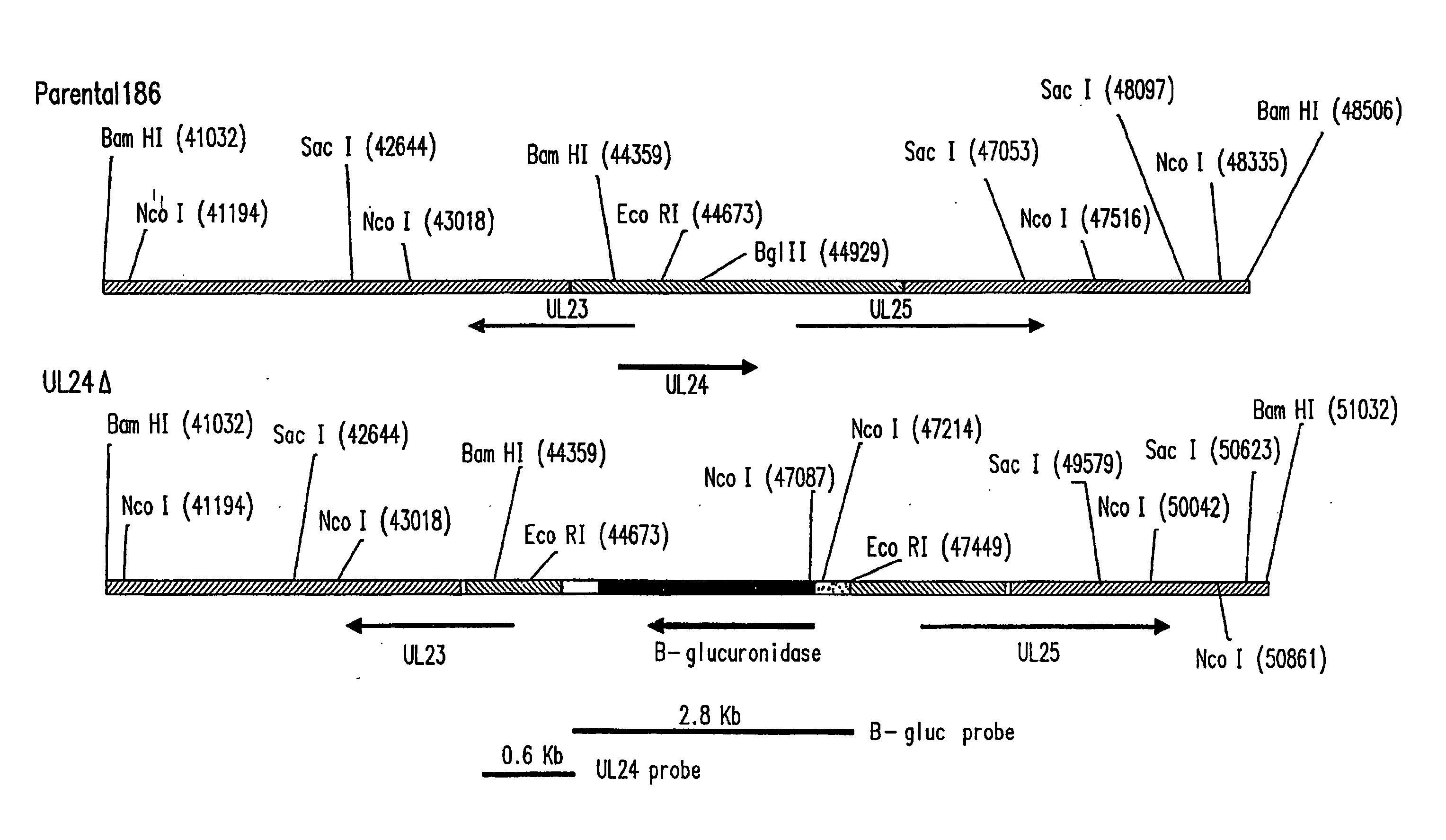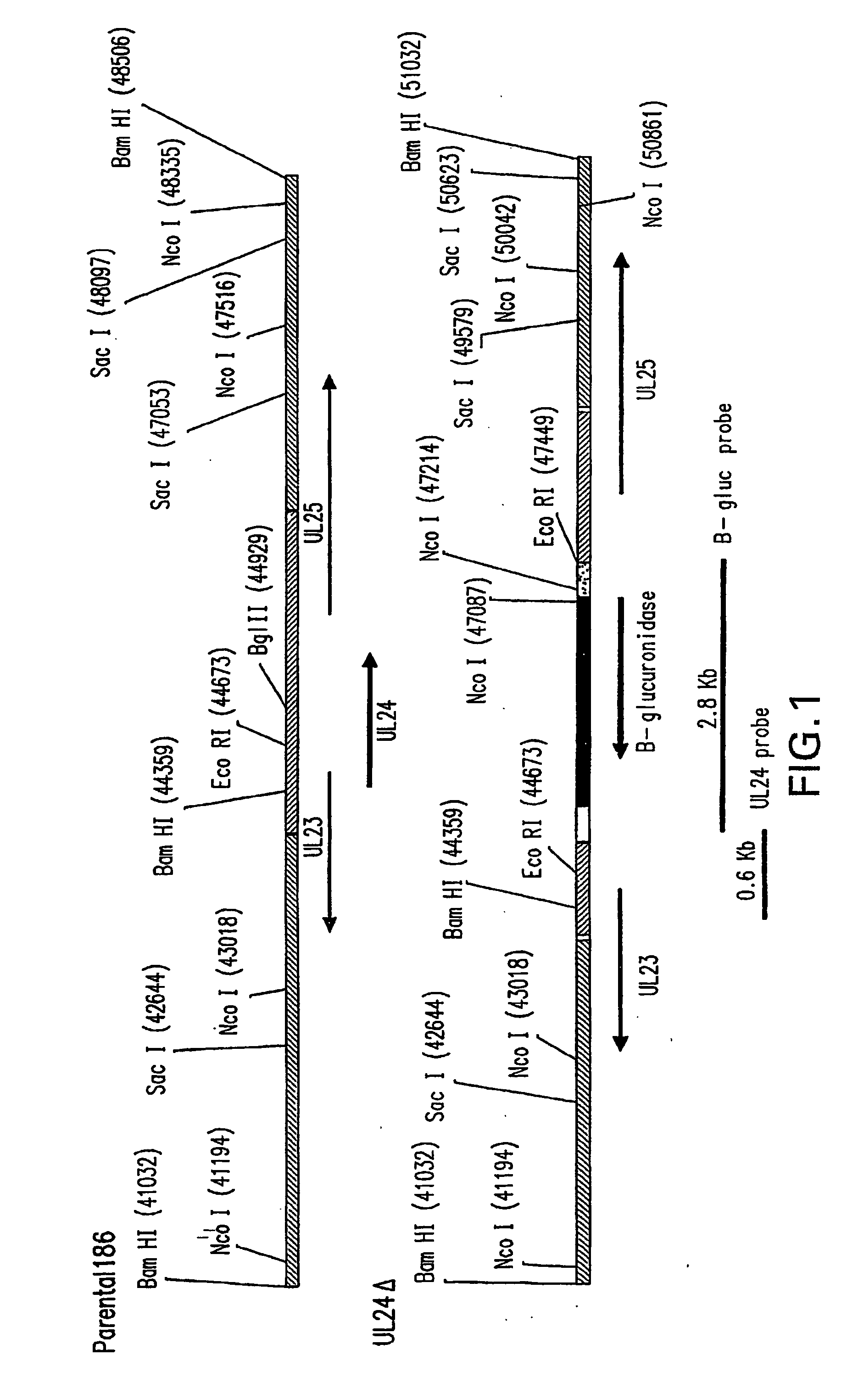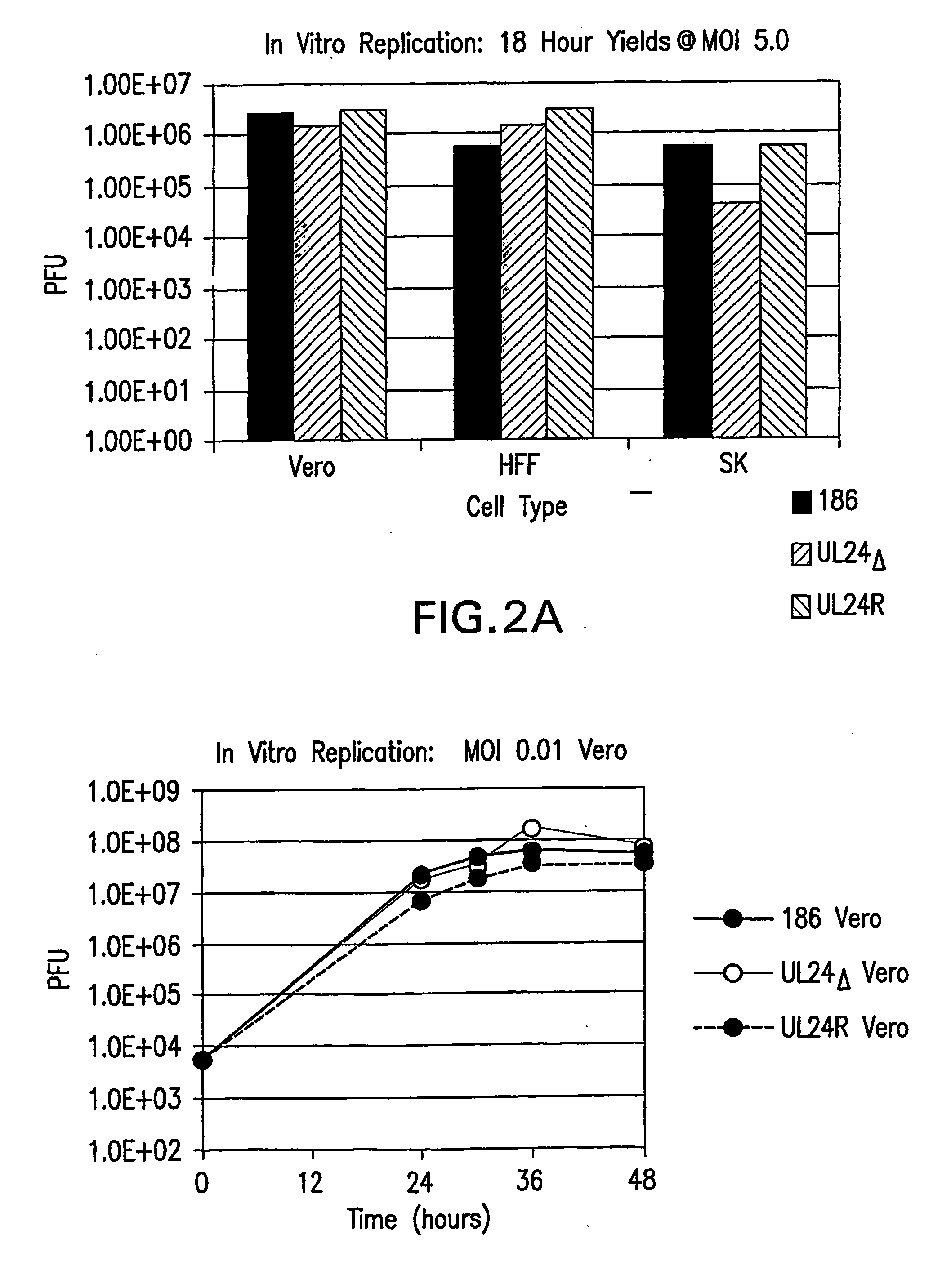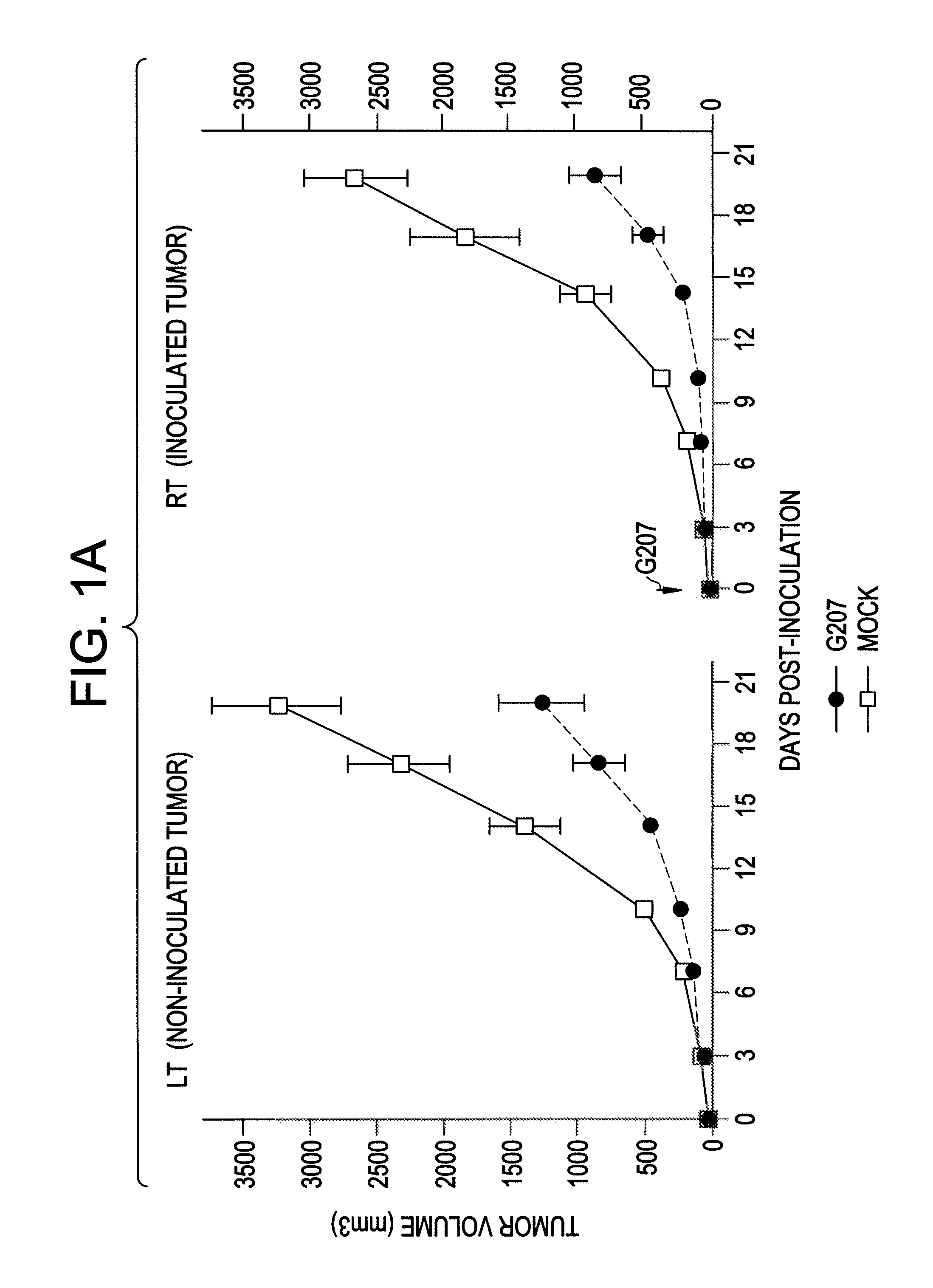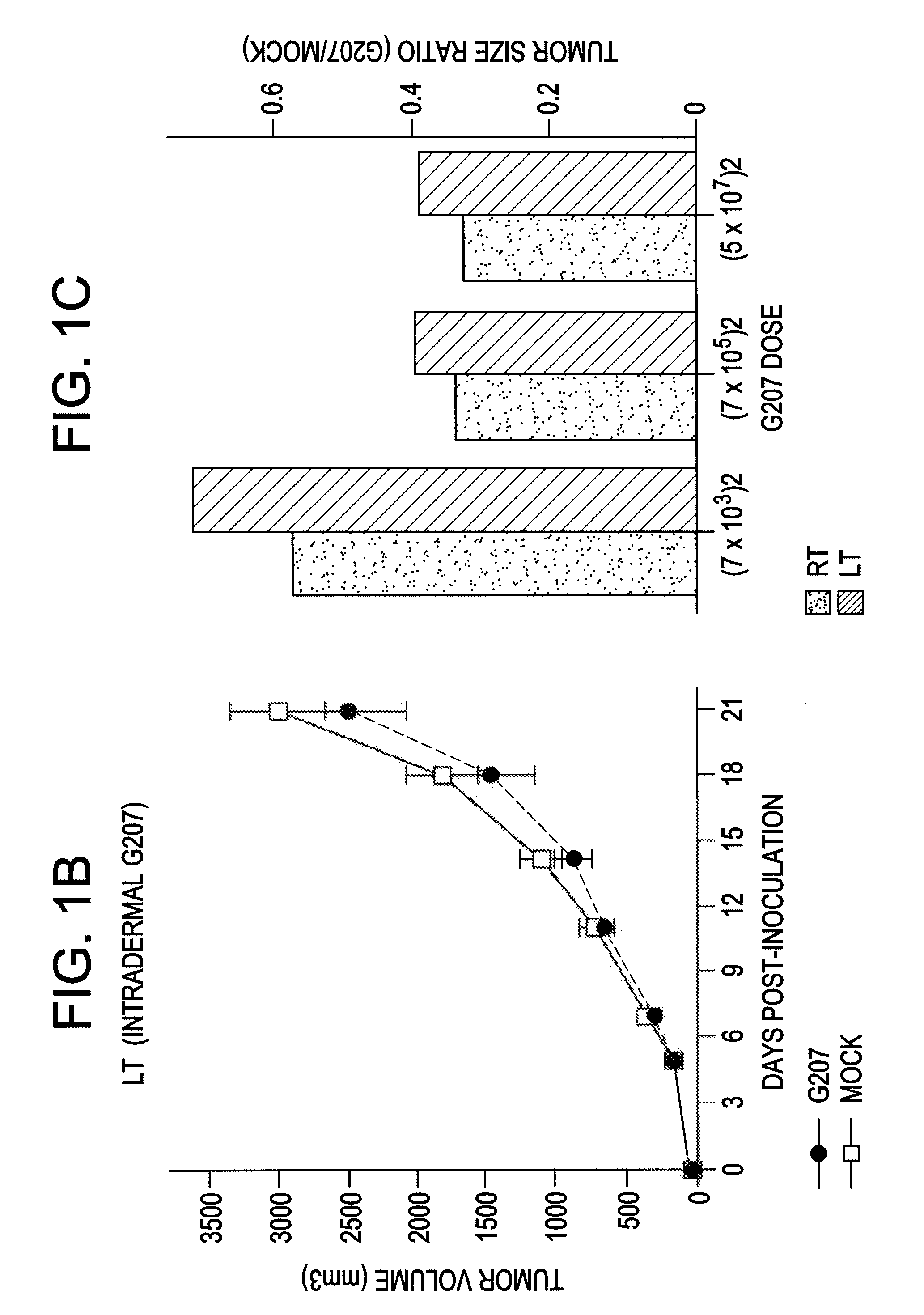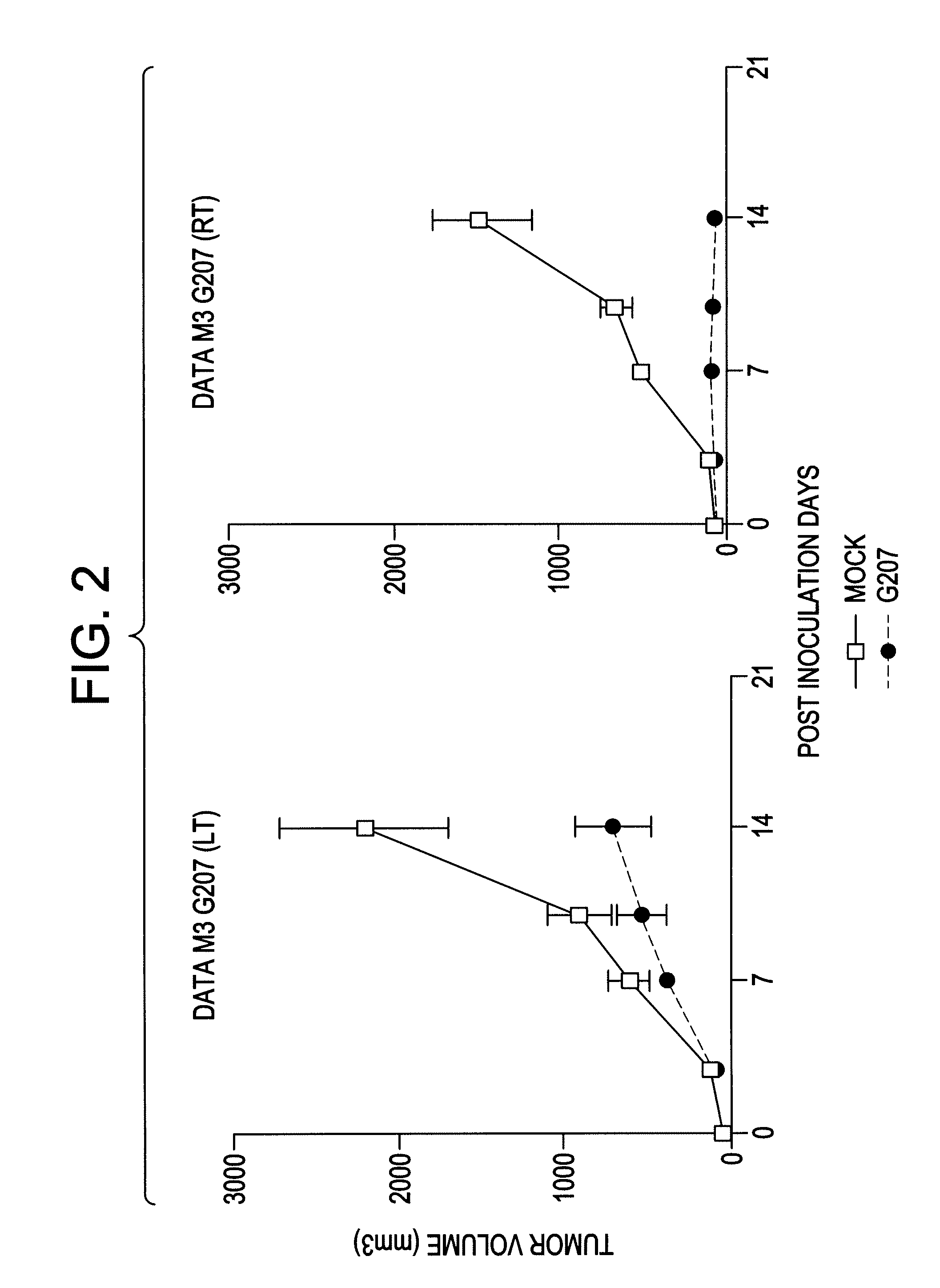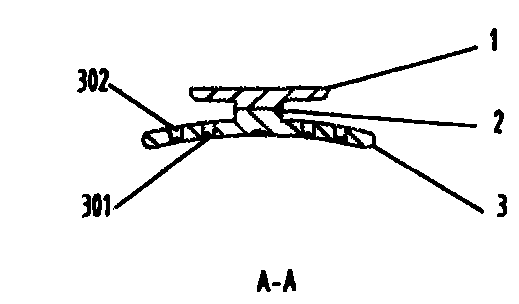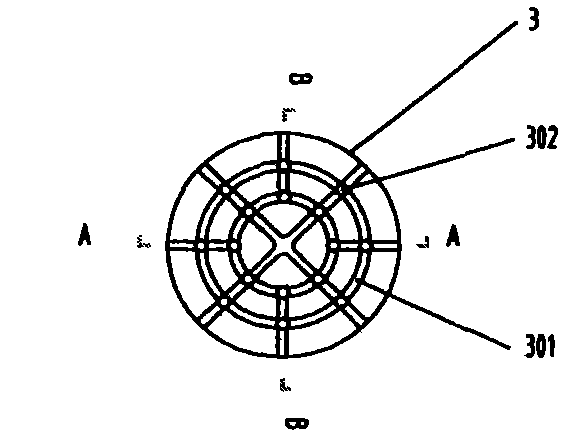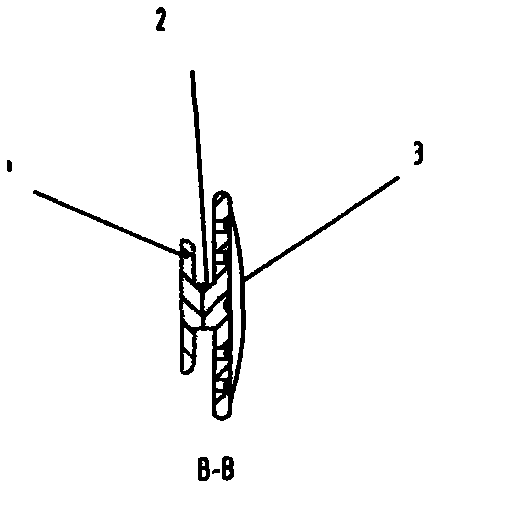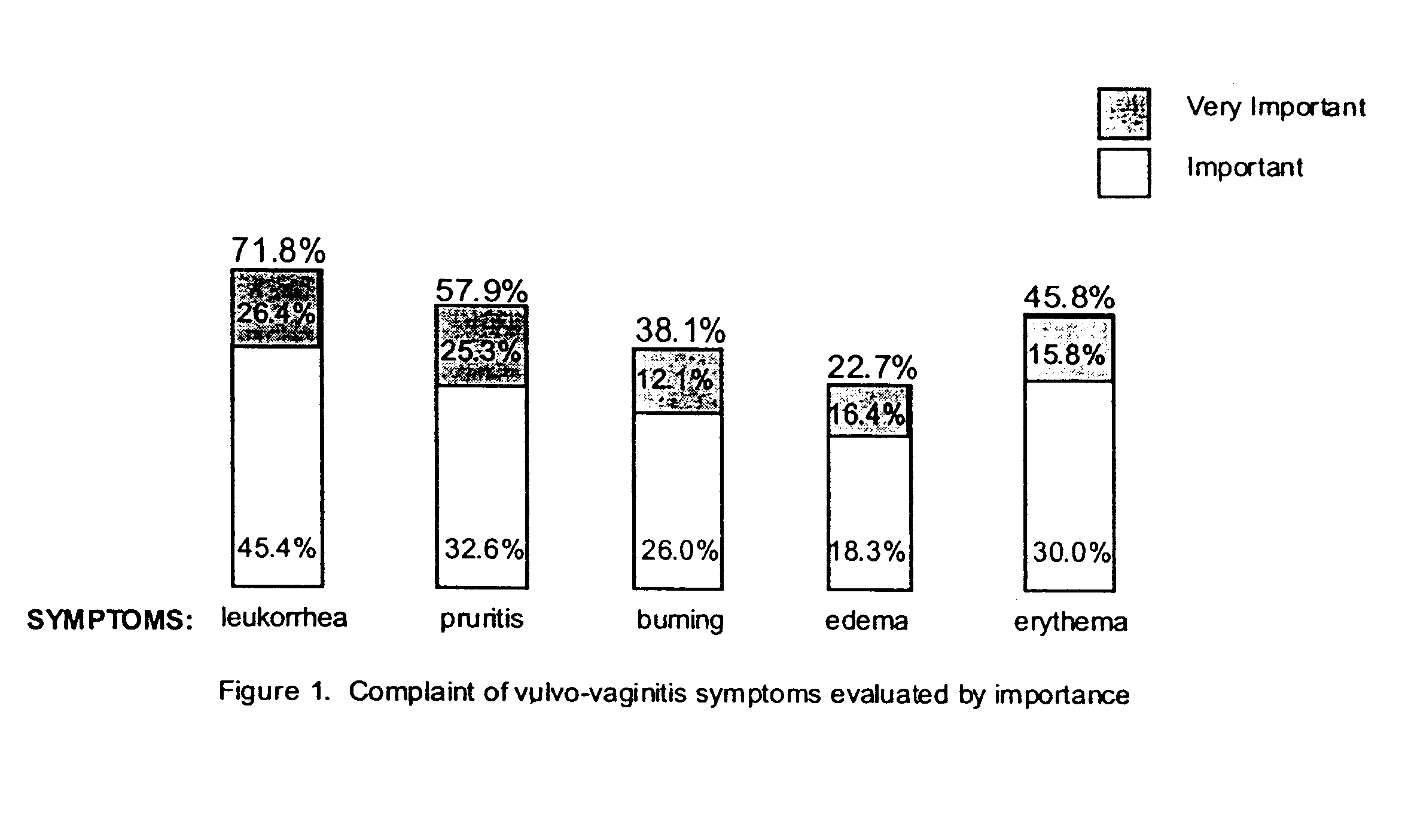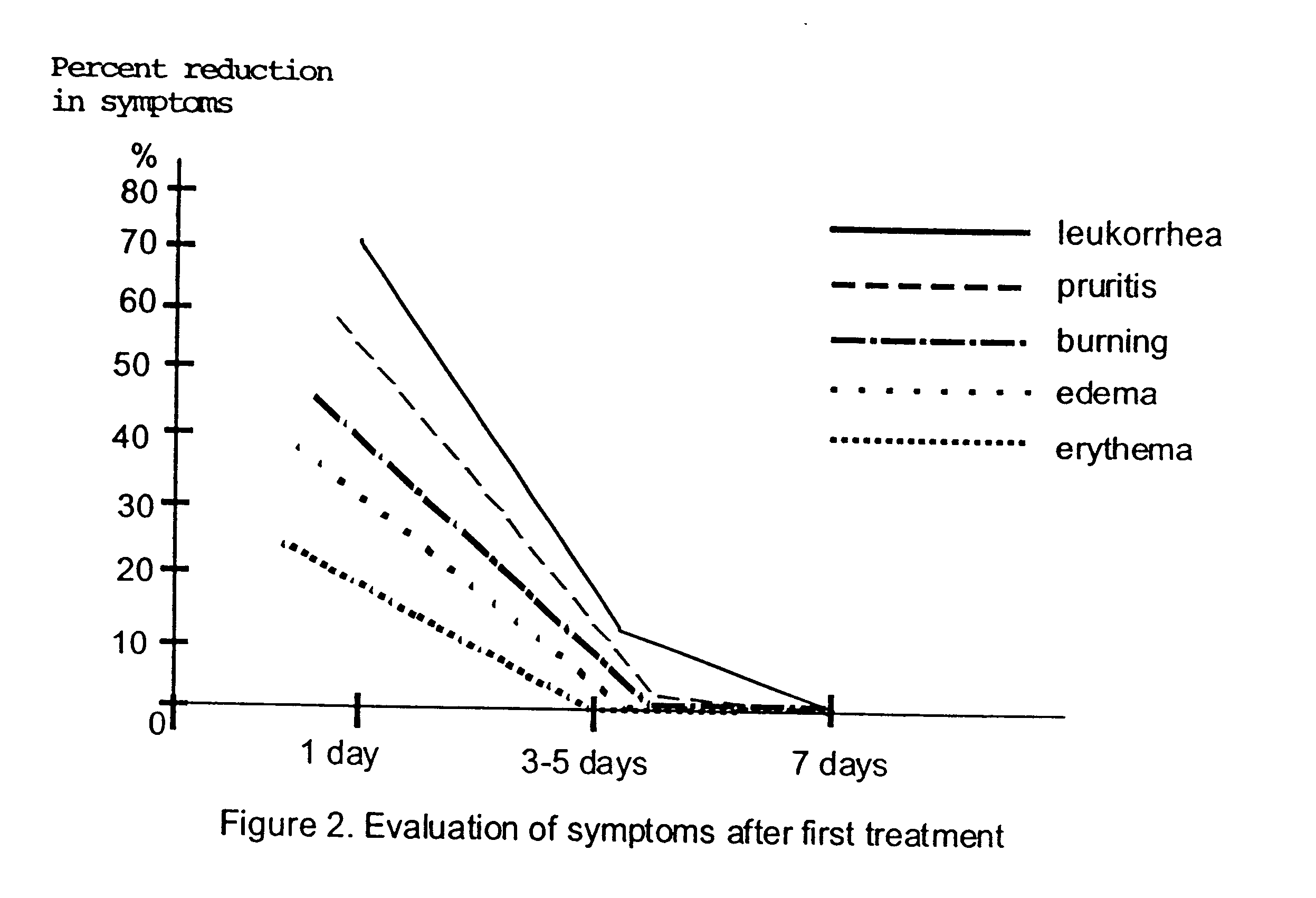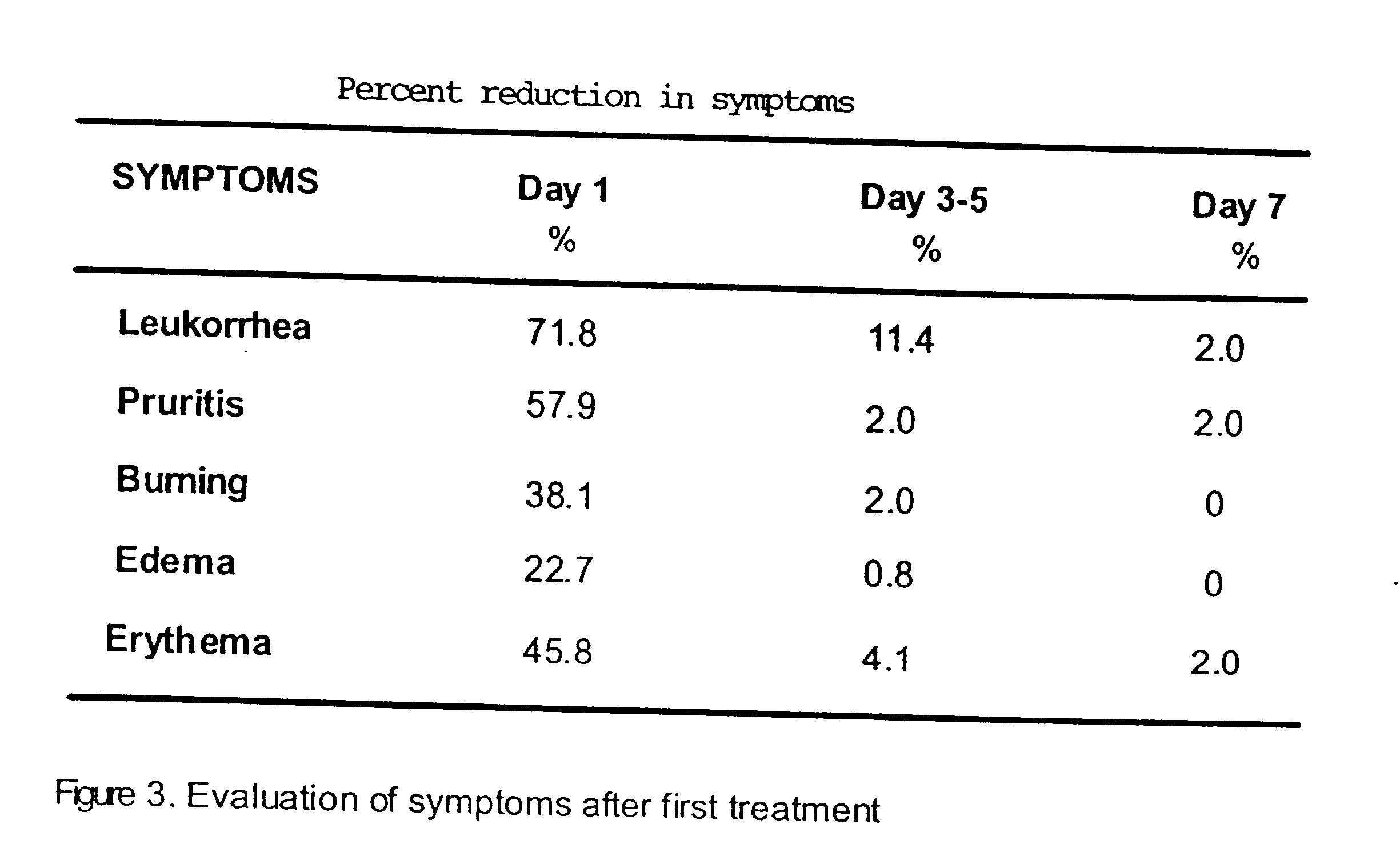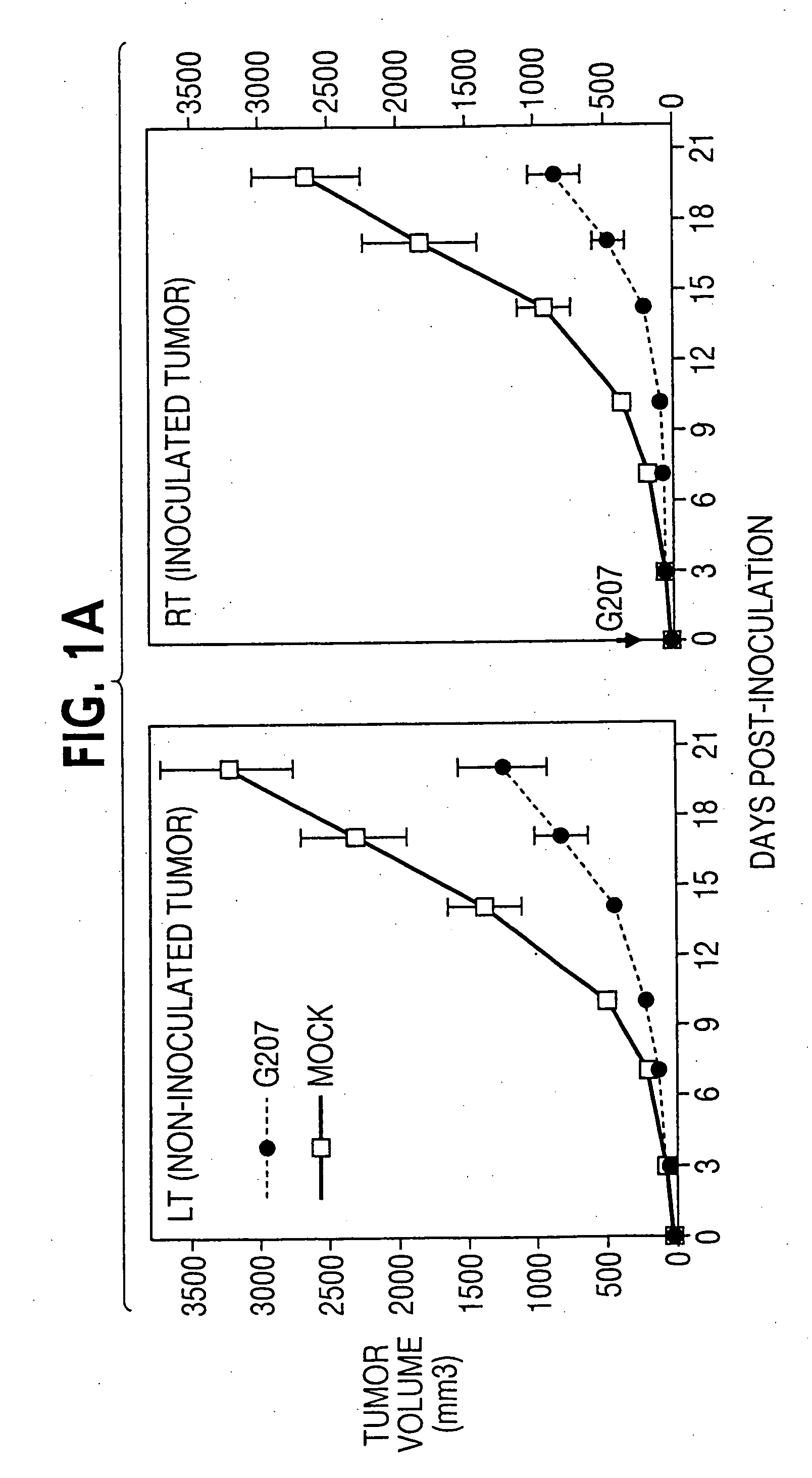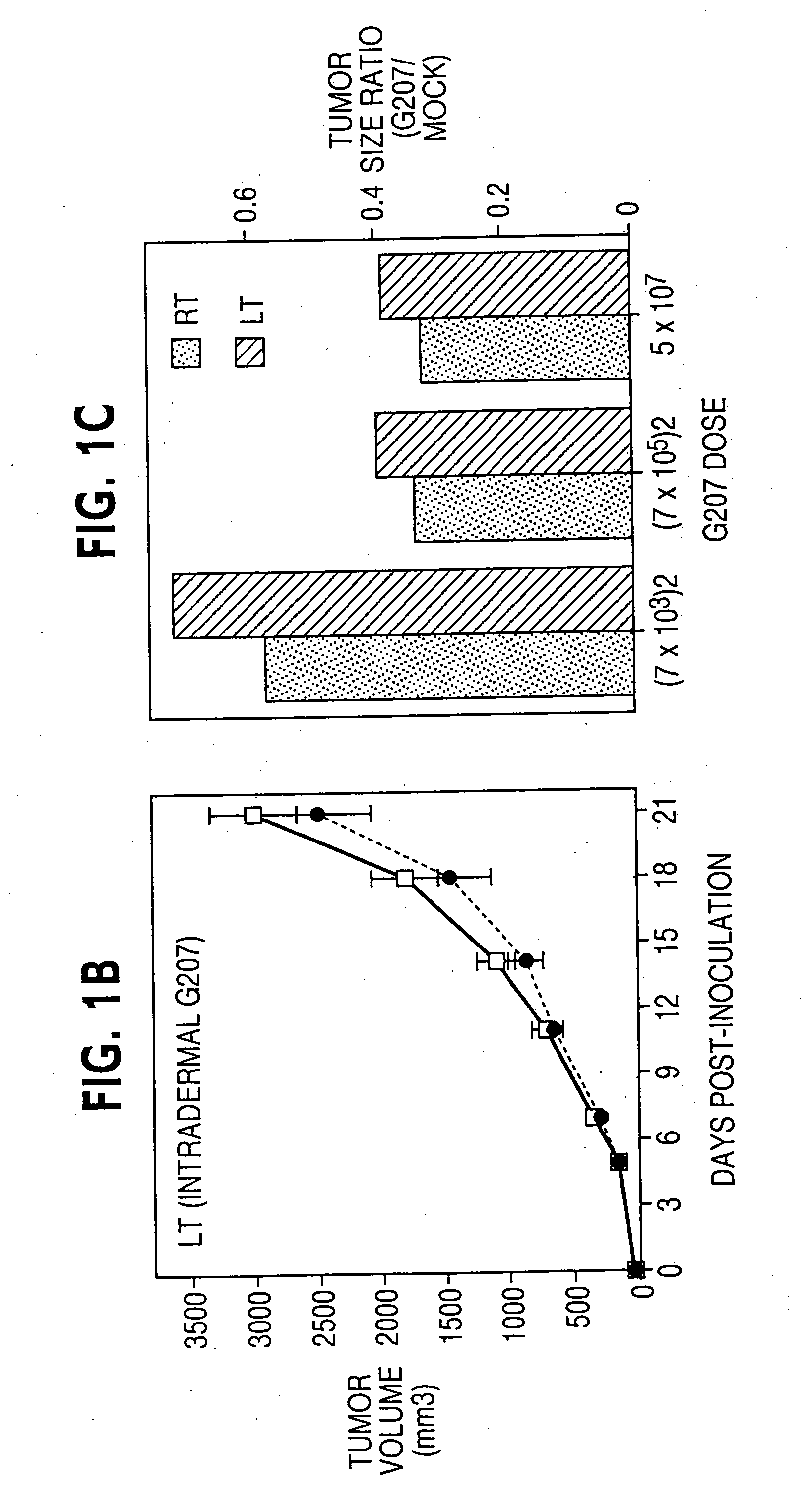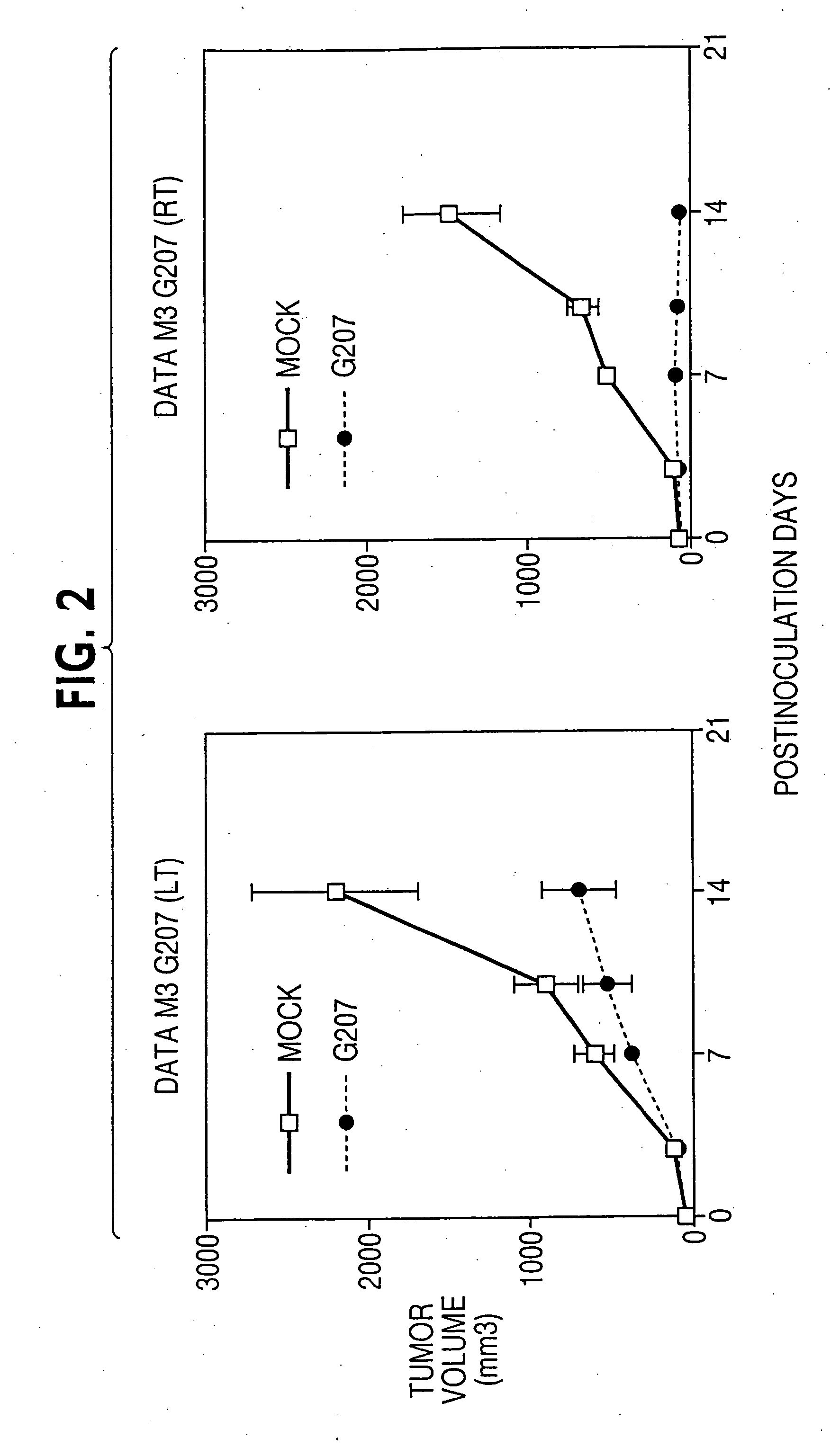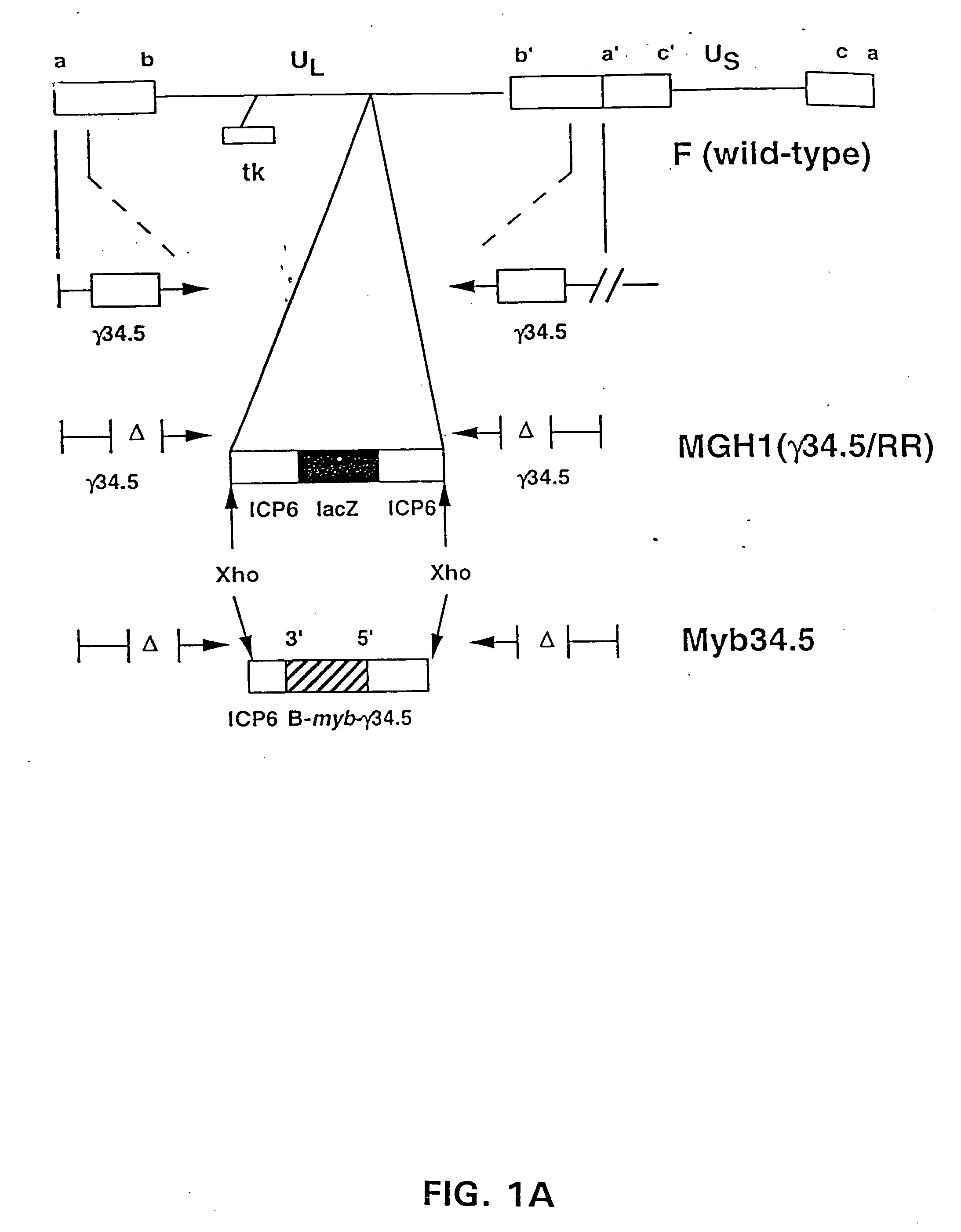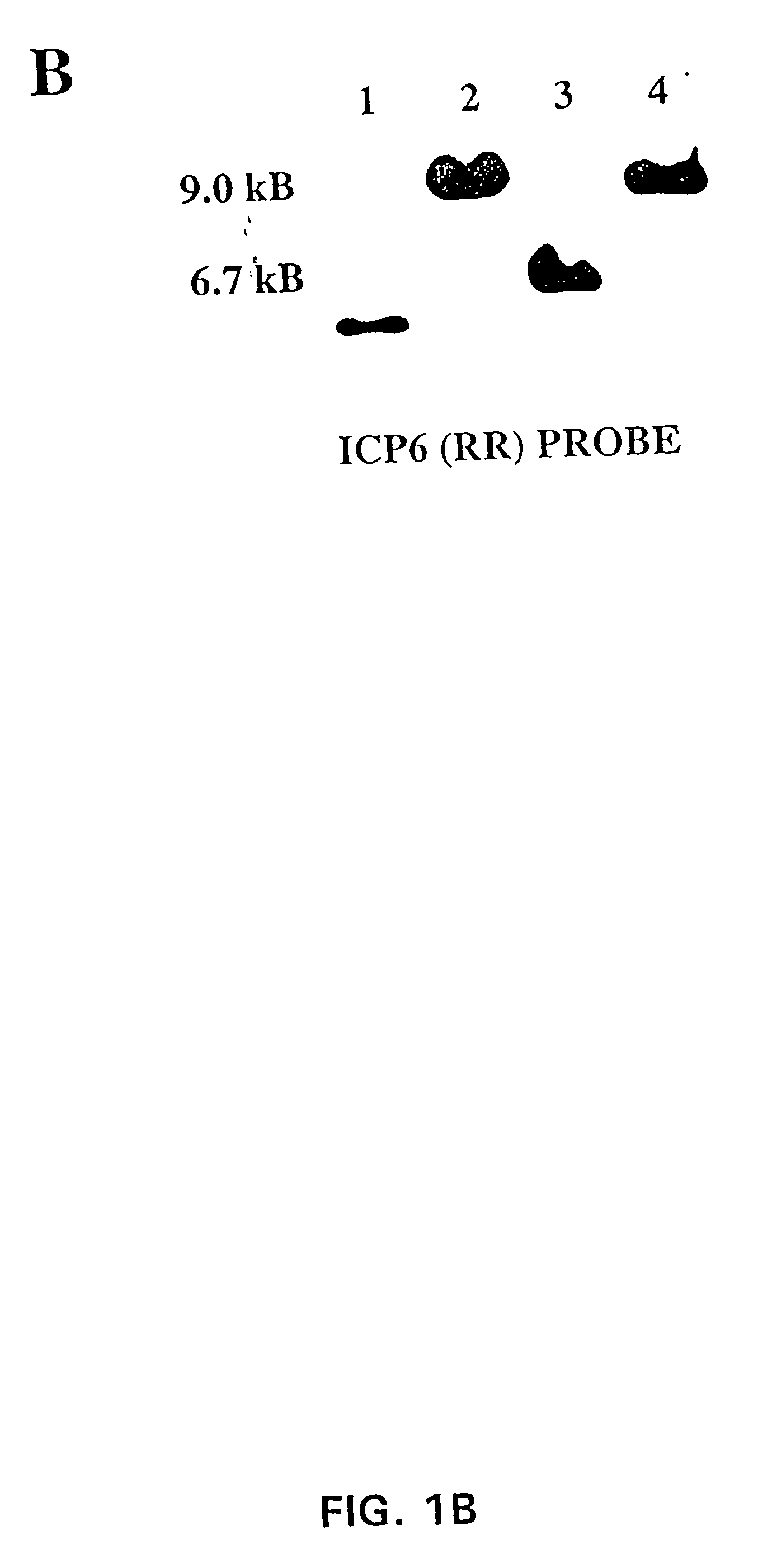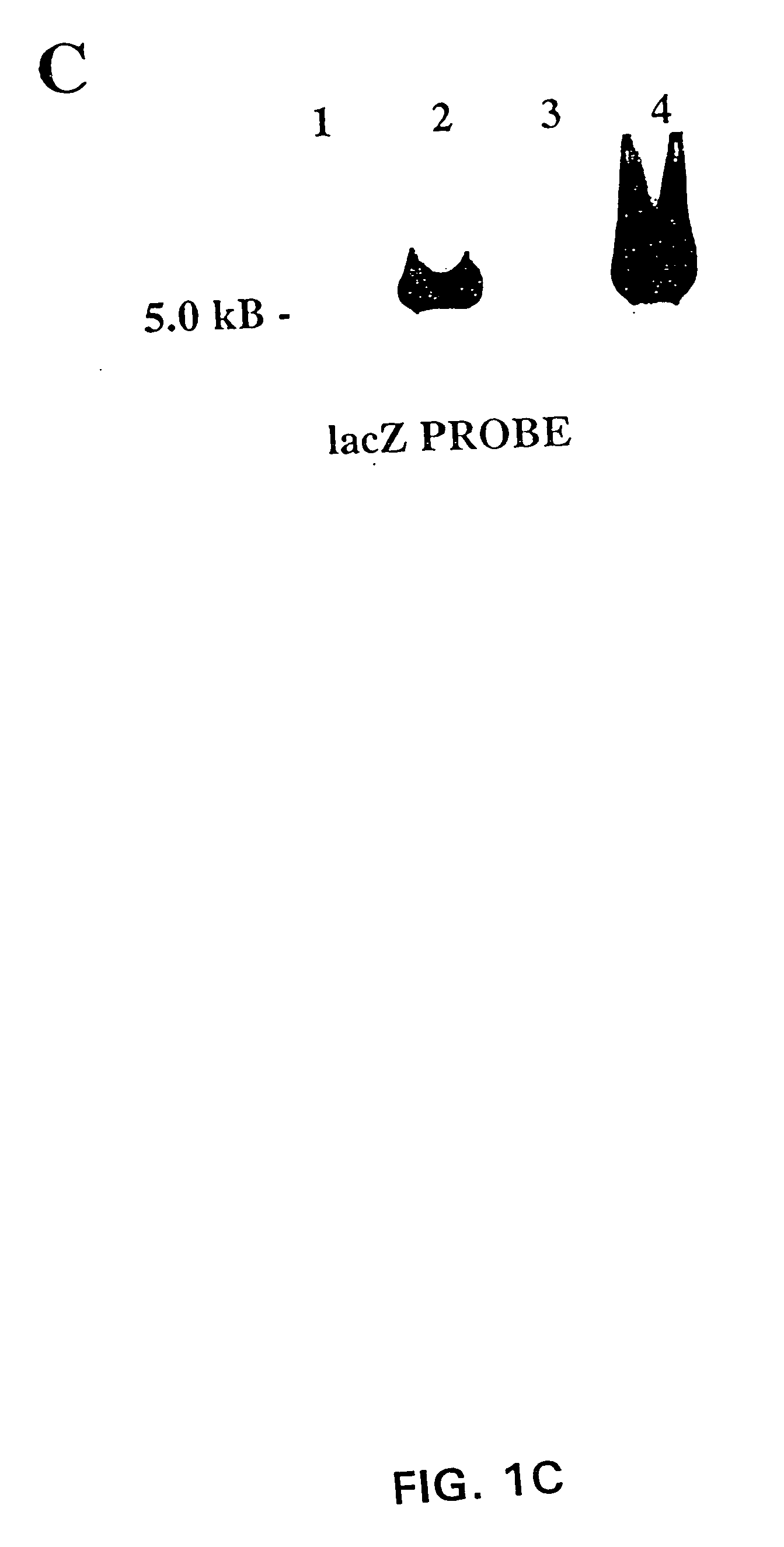Patents
Literature
90 results about "Epulis" patented technology
Efficacy Topic
Property
Owner
Technical Advancement
Application Domain
Technology Topic
Technology Field Word
Patent Country/Region
Patent Type
Patent Status
Application Year
Inventor
Epulis (Greek: ἐπουλίς; plural epulides) is any tumor like enlargement (i.e. lump) situated on the gingival or alveolar mucosa. The word literally means "(growth) on the gingiva", and describes only the location of the mass and has no further implications on the nature of the lesion. There are three types: fibromatous, ossifying and acanthomatous. The related term parulis (commonly called a gumboil) refers to a mass of inflamed granulation tissue at the opening of a draining sinus on the alveolus over (or near to) the root of an infected tooth. Another closely related term is gingival enlargement, which tends to be used where the enlargement is more generalized over the whole gingiva rather than a localized mass.
Anti-infective compositions for treating disordered tissue such as cold sores
The present invention relates to the treatment of disordered epithelial tissues such as cold sores and other complications resulting from disorders such as herpes, and the like. The invention relates to the use of an anti-infective and / or antimicrobial active agent in a carrier, with vigorous agitation of the disordered epithelial tissue for topical treatment thereof under such conditions sufficient to achieve clinically discernable improvement of the disordered epithelial tissue. The preferred anti-infective and / or antimicrobial active agent is an organohalide such as a quaternary ammonium compound, preferably benzalkonium chloride. The inventive method may be used also in connection with a preferred applicator configuration.
Owner:CHURCH & DWIGHT CO INC
Methods for treating cold sores with anti-infective compositions
InactiveUS6211243B1Rapid decline of infectionFast decayAntibacterial agentsBiocideDiseaseAmmonium compounds
The present invention relates to a method of treated disordered epithelial tissues such as cold sores and other complications resulting from disorders such as herpes, and the like. The inventive method combines an anti-infective and / or antimicrobial active agent in a carrier, with vigorous agitation of the disordered epithelial tissue for topical treatment thereof under such conditions sufficient to achieve clinically discernable improvement of the disordered epithelial tissue. The preferred anti-infective and / or antimicrobial active agent is an organohalide such as a quaternary ammonium compound, preferably benzalkonium chloride. The inventive method may be used also in connection with a preferred applicator configuration.
Owner:CHURCH & DWIGHT CO INC
Glaucoma drainage shunts and methods of use
ActiveUS20100114006A1Reducing heightened intraocular pressureEasy outflowLaser surgeryWound drainsVisibilityGlaucoma
A method of treating glaucoma in an eye utilizing an implanted shunt having an elastomeric plate and a non-valved elastomeric drainage tube. The plate is positioned over a sclera of the eye with an outflow end of the elastomeric drainage tube open to an outer surface of the plate. An inflow end of the drainage tube tunnels through the sclera and cornea to the anterior chamber of the eye. The drainage tube collapses upon initial insertion within an incision in the selera and cornea, or at a kink on the outside of the incision, but has sufficient resiliency to restore its patency over time. The effect is a flow restrictor that regulates outflow from the eye until a scar tissue bleb forms around the plate of the slunt. The plate desirably has a peripheral ridge and a large number of fenestrations, and a longer suturing tab extending from one side of the plate to enhance visibility and accessibility when suturing the shunt to the selera.
Owner:JOHNSON & JOHNSON SURGICAL VISION INC
Formulations for the prevention or the treatment of diseases affecting mucosae or skin, or for pregnancy prevention, and an applicator for the delivery of topical formulations into mucosal cavities
This invention relates to formulations for the prevention of infection and / or abnormal conditions of mucosae and / or skin caused by any pathogen and / or any disease, and more particularly for the prevention of sexually transmitted infections specially HIV and HSV. This invention also relates to formulations for the treatment of infection and / or abnormal conditions of skin and / or mucosae and more particularly for the treatment of herpetic lesions. The formulations could be used as a prophylactic agent to prevent accidental infection of health care workers. The formulations could be used for the healing and / or treatment of burn wounds and prevention of further infection. This invention also relates to the development of a unique vaginal / ano-rectal applicator for the uniform delivery of any topical formulations to treat and / or prevent any infection and / or abnormal conditions of mucosa cavity caused by any pathogen and / or disease.
Owner:UNIV LAVAL
Glaucoma drainage shunts and methods of use
ActiveUS20130102949A1Reducing heightened intraocular pressureEasy outflowLaser surgeryWound drainsVisibilityGlaucoma
A method of treating glaucoma in an eye utilizing an implanted shunt having an elastomeric plate and a non-valved elastomeric drainage tube. The plate is positioned over a sclera of the eye with an outflow end of the elastomeric drainage tube open to an outer surface of the plate. An inflow end of the drainage tube tunnels through the sclera and cornea to the anterior chamber of the eye. The drainage tube collapses upon initial insertion within an incision in the sclera and cornea, or at a kink on the outside of the incision, but has sufficient resiliency to restore its patency over time. The effect is a flow restrictor that regulates outflow from the eye until a scar tissue bleb forms around the plate of the shunt. The plate desirably has a peripheral ridge and a large number of fenestrations, and a longer suturing tab extending from one side of the plate to enhance visibility and accessibility when suturing the shunt to the sclera.
Owner:JOHNSON & JOHNSON SURGICAL VISION INC
Anti-infective compositions, methods and systems for treating disordered tissue
InactiveUS6759434B2Fast attackFast decayBiocideHydroxy compound active ingredientsDiseaseAmmonium compounds
The present invention relates to the treatment of disordered epithelial tissues such as cold sores and other complications resulting from disorders such as herpes, and the like. The invention relates to the use of an anti-infective and / or antimicrobial active agent in a carrier, with vigorous agitation of the disordered epithelial tissue for topical treatment thereof under such conditions sufficient to achieve clinically discernable improvement of the disordered epithelial tissue. The preferred anti-infective and / or antimicrobial active agent comprises an organohalide, such as a quaternary ammonium compound, preferably benzalkonium chloride. The inventive method may be used also in connection with a preferred applicator configuration.
Owner:CHURCH & DWIGHT CO INC
Formulations useful for the treatment of varicella zoster virus infections and methods for the use thereof
InactiveUS20050203187A1Inhibiting varicella zoster virus replicationBiocideHydroxy compound active ingredientsVaricella-zoster virus infectionActive agent
Jojoba alcohol, a mixture of long chain monounsaturated alcohols, is an oily liquid at moderate ambient temperatures. It is readily absorbed by human skin where it relieves irritation and inhibits the formation of lesions caused by viruses. The inhibitory action is applicable to enveloped viruses which express as sores at dermal surfaces in humans. When applied topically to an incipent herpes episode, it will quickly penetrate the epidermis to the subdermal vascular cells and suppress viral replication which leads to inflammation and the formation of blisters on the face, genital and other skin and mucosal areas. Fumaric acid and malonic acid at low concentrations also inhibit the replication of varicella zoster virus in human cell cultures, with no cellular toxicity. Compositions of certain low molecular weight organic acids in jojoba alcohol enhance antiviral activity. Topical treatment of shingles with a low concentration of fumaric acid in jojoba alcohol terminates the episode. This combination drug acts by a dual mechanism wherein the jojoba alcohol blocks viral fusion by a lipoidal mode, and the polycarboxylic acids inhibit viral fusion by an ionic mode. The combination drug can also be effective in treating chicken pox. Jojoba alcohol is a carrier and transdermal delivery system for these and other pharmacologically active agents for the relief of pain and treatment of other conditions which occur at or under the surface of the skin. Topically applied jojoba alcohol is non-toxic and safe for animals and humans.
Owner:VERBISCAR ANTHONY J
Derivatives of sandalwood oil and santalols for treating cold sores and herpes
InactiveUS7858126B2Improve lipophilicityNon-irritation to the skin and stabilityBiocideOrganic active ingredientsSolubilitySandalwood oil
The present invention relates to the formulations of ester derivatives of sandalwood oil and santalol. These derivatives are capable of reverting to the active parent compound following enzymatic or chemical hydrolysis. These derivatives have a higher lipophilicity, lipid solubility and less irritation to the skin than the parent compound, and hence are better able to be incorporated into certain pharmaceutical formulations, including cream and ointment pharmaceutical formulations. The compounds of the present invention are set forth by the following formula:The present invention generally pertains to a compound of formula (I):R—CO—SWO (I)wherein SWO refers to collectively the alcohols, including santalol, present in the sandalwood oil; wherein R is selected from alkyl groups of up to about 22 carbon atoms and aryl groups of up to about 22 carbon atoms and alkylene group of up to about 22 carbon atoms and an arylene group of up to about 22 carbon atoms. The alkyl, aryl and alkylene groups may be substituted or unsubstituted, branched or straight chains. In addition, R may contain heteroatoms and may be straight chained or branched.Compounds of formula I are useful as anti-bacterial and anti-viral in mammals in vivo and have been contemplated to be used in the treatment of skin disease.
Owner:TRINITY LAB INC
Methods and compositions for treating herpes infections
A method of treatment or prophylaxis of herpes infections and associated disease states by administration of compositions comprising immunoglobulins. Methods comprising intravenous and topical administration of immunoglobulins are provided.
Owner:TALECRIS BIOTHERAPEUTICS INC
Compositions using tetrasilver tetroxide and methods for management of skin conditions using same
InactiveUS20060105057A1Improve adhesionInhibit excessive runoffBiocideInorganic active ingredientsVirus wartsSkin ulcerations
Pharmaceutical compositions including tetrasilver tetroxide (Ag4O4), such as in crystalline form, and methods of using such compositions for the prevention, treatment, and management various of dermatological skin conditions and diseases. In one embodiment, these compositions are substantially free of added persulfates. These dermatological conditions and diseases that may be prevented, treated, or managed with the compositions of the invention vary and include, but are not limited to, eczema, psoriasis, dermatitis, disease-induced skin ulcers, undefined tropical diseases, shingles, rashes, bedsores, cold sores, blisters, boils, herpes simplex, acne, pimples, skin chafing, skin cracking, itchiness, skin peeling, and warts.
Owner:AIDANCE SKINCARE & TOPICAL SOLUTIONS
Hsv-1 and hsv-2 vaccines and methods of use thereof
ActiveUS20110177125A1Reduce morbidityReducing pathogenesisSenses disorderNervous disorderVaccinationGenital ulcer
This invention provides methods of vaccinating a subject against a Herpes Simplex Virus (HSV) infection and disorders and symptoms associated with same, and impeding, inhibiting, reducing the incidence of, and suppressing HSV infection, neuronal viral spread, formation of zosteriform lesions, herpetic ocular disease, herpes-mediated encephalitis, and genital ulcer disease in a subject, comprising the step of contacting the subject with a mutant strain of the HSV, containing an inactivating mutation in a gene encoding a gE, gl, Us9, or other proteins.
Owner:THE TRUSTEES OF THE UNIV OF PENNSYLVANIA
Therapeutic treatment device and method for cold sores and the like
A therapeutic treatment device for treating colds sores and the like. The device includes a housing configured to be hand held, and having an annular pad at one end thereof configured to engage and area of the body of the user. A heat source is maintained adjacent the pad. A controller, in the form of a programmable chip or the like, allows for the heat source to be energized for a particular period of time, shutting off automatically. After a predetermined quiescent period of time has expired, the device signals the user that the heat source can be energized again, with the controller then maintaing the activation of the heat source for a second preselected period of time. The cycle continues until the treatment is complete. A treatment actuator communicates with the controller to enable the controller to process through the treatment sequence. The treatment activator may be specifically tailored to any of various treatments, including the treatment for a cold sore, an insect bite, a bee sting, a spider bite, or the like.
Owner:THE JENEX CORP
Anti-infective compositions, methods and systems for treating disordered tissue
InactiveUS20020188028A1Fast attackFast decayBiocideHydroxy compound active ingredientsDiseaseAmmonium compounds
The present invention relates to the treatment of disordered epithelial tissues such as cold sores and other complications resulting from disorders such as herpes, and the like. The invention relates to the use of an anti-infective and / or antimicrobial active agent in a carrier, with vigorous agitation of the disordered epithelial tissue for topical treatment thereof under such conditions sufficient to achieve clinically discernable improvement of the disordered epithelial tissue. The preferred anti-infective and / or antimicrobial active agent comprises an organohalide, such as a quaternary ammonium compound, preferably benzalkonium chloride. The inventive method may be used also in connection with a preferred applicator configuration.
Owner:CHURCH & DWIGHT CO INC
Composition for the treatment of herpes and cold sores
A composition for treating herpes and cold sores. The composition may be topically applied, ingested into the body, or injected into the body. The composition may be applied quickly and discretely in order to sooth and treat herpes and cold sores. The composition utilizes a highly effective combination of compounds, including olea europaea leaf extract and olea europaea fruit oil, to achieve this end.
Owner:OLEAVICIN
Bleb drainage device, ophthalmological product and methods
Fluid is drained from a bleb using a device including a tubular member having opposed open ends to enable the fluid to flow from end to end through the tubular member. Inward from one end is a stop element enabling the one end to be inserted in one direction through a wall of the bleb but preventing the inserted end from being pulled in the opposite direction through the bleb wall. The opposed remote end of the tubular member is inserted into the retrobulbar space to enable fluid exiting the tubular member at this remote end to drain into the tissue. Along an exterior of the tubular member is an anchoring element enabling the device to be sutured in position. An ophthalmic product has a bleb drainage feature.
Owner:SPONSELL WILLIAM ERIC +1
Oligonucleotide therapies for modulating the effects of herpesviruses
InactiveUS6310044B1Conveniently and desirably presentedFaster replicationPeptide/protein ingredientsGenetic material ingredientsOpen reading frameHerpesvirus infection
Compositions and methods are provided for the treatment and diagnosis of herpesvirus infections. In accordance with preferred embodiments, oligonucleotides are provided which are specifically hybridizable with RNA or DNA deriving from a gene corresponding to one of the open reading frames UL5, UL8, UL9, UL13, UL29, UL30, UL39, UL40, UL42 AND UL52 of herpes simplex virus type 1. The oligonucleotide comprises nucleotide units sufficient in identity and number to effect said specific hybridization. In other preferred embodiments, the oligonucleotides are specifically hybridizable with a translation initiation site; it is also preferred that they comprise the sequence CAT. Methods of treating animals suspected of being infected with herpesvirus comprising contacting the animal with an oligonucleotide specifically hybridizable with RNA or DNA deriving from one of the foregoing genes of the herpesvirus are disclosed. Methods for treatment of infections caused by herpes simplex virus type 1, herpes simplex virus type 2, cytomegalovirus, human herpes virus 6, Epstein Barr virus or varicella zoster virus are disclosed.
Owner:IONIS PHARMA INC
External use medicine for treating blister sore
InactiveCN1442172ASignificant effectHeat-clearing and detoxifyingAntiviralsMammal material medical ingredientsHerpes GestationisCure rate
An exterior-applied Chinese medicine for treating herpes zoster, herpes gestationis and herpes simple is prepared from 5 Chinese medicinal materials including realgar, coptis root, borneol, musk, etc. according a certain proportion through compounding. Its advantages are high cure rate up to 92%, high total effective rate up to 98%, and not toxic by-effect.
Owner:李淑凤
Herpes Treatment and Dressing
A dressing assembly configured to treat a herpetic lesion including a semi-permeable material sized and shaped to cover a herpetic lesion on human tissue. The invention also provides a method of treating a herpetic lesion (such as lesions caused by, e.g., herpes simplex 1, herpes simplex 2, or herpes zoster) including the step of applying a semi-permeable dressing to cover said wound for a sufficient time to heal said lesion.
Owner:BERMAN DAVID A
Microfluidic device for detection of five indicators of sound child rearing
ActiveCN107102139AImplement automatic detectionEasy to operateLaboratory glasswaresMaterial analysisCell specificAntigen
The present invention discloses a microfluidic device for detection of five indicators of sound child rearing, the microfluidic device includes a microfluidic chip, a temperature control module, a micro motor moving module and a CCD detection module, through the mutual matching of the micro motor moving module, the temperature control module and the microfluidic chip, the processes of capture of target cell specific antigens and cleaning of cell antigens non-specifically adsorbed on microsphere surface by use of antibodies coating the microsphere surface, capture of enzyme labelled antibodies by use of the target cell antigens non-specifically adsorbed on the microsphere surface and catalytic chemiluminiscence of an excitation liquid by use of enzymes non-specifically adsorbed on the microsphere surface and the like can be respectively completed, the CCD detection module is cooperated for acquisition and detection of chemicalluminescence signals on the microsphere surface so as to achieve integration operation of the capture and detection process of five indicator antigens of sound child rearing in serum samples; the five indicators of sound child rearing comprise TOX (Toxoplasma gondii), RUB (Rubella), CMV (cytomegalovirus), HSV-1 (herpe-1), and HSV-2 (herpe-2).
Owner:BEIJING UNIV OF CHEM TECH +1
Dermatological compositions containing an association of peroxidized lipids and zinc, and uses thereof in particular in the treatment of herpes
ActiveUS20110159106A1Treating quickly and effectivelyImprove adhesionBiocideInorganic phosphorous active ingredientsLipid formationZinc compounds
A dermatological composition containing an association of peroxidized lipids; and zinc in mineral form or zinc compound compatible with dermatological use, formulated for topical application on the skin or the mucous membranes, is disclosed compatible with dermatological use. The composition may be used as a medical device to assist in healing and / or reconstitution of a damaged epidermis and / or to act as an analgesic agent on the skin or the mucous membranes, in particular in the treatment of the symptoms of herpes, pruritus, itching, irritations, eczema, burns, and most particularly in the treatment of labial or genital herpes.
Owner:LAB CARILENE SA +1
Attenuated Herpes Simplex Virus Type-2, Vectors Thereof and Immunogenic Compositions Thereof
The present invention broadly relates to the attenuation of herpes simplex virus type 2 (HSV-2). More particularly, the invention relates to the identification of mutations in the HSV-2 UL24 gene which attenuate the pathogenicity of HSV vectors in mammals and immunogenic compositions thereof.
Owner:WYETH LLC
Cold sore formulation and related method of manufacture
InactiveUS20120225143A1Assisting long-term healingAmeliorating painBiocideDipeptide ingredientsL-CarnosineMedicine
An composition for application to a disordered tissue, the composition including an antipathogenic agent, a healing agent and an optional soothing agent. The antipathogenic agent can include cineole, and the healing agent can include an amino acid such as L-arginine or L-carnosine. The cineole can be of dual function, for example, it can operate as an antipathogenic agent, and also operate to enhance penetration of at least one of the antipathogenic agent, healing agent and / or soothing agent into the disordered tissue, which can be skin of a subject. The disordered tissue can be afflicted by an infection, for example, a Type I herpes infection, and can be in the form of a cold sore. The composition can be in a form, such as a cream or a lip balm, adapted for topical application to the disordered tissue. A method for treating the disordered tissue with the composition is also provided.
Owner:RANIR LLC
Method of cancer treatment; method of diabetes treatment; method of multiple sclerosis treatment; method of interstitial cystitis treatment; method of acquired immune deficiency syndrome treatment; and method of herpes treatment
InactiveUS20060062762A1Strengthen the patient's immune systemPromote regenerationBiocidePeptide/protein ingredientsAcquired immunodeficiencyInterstitial cystitis
A method treating diseases including cancer comprising administering a drug which provides interferon alpha once inside the body, administering a vaccine containing tumor necrosis factor, and administering a predetermined quantity of an anti-viral drug. The three drugs work together to strengthen the patient's immune system, make the infection or virus more vulnerable to attack by the immune system, and enabling the body to regenerate healthy cells and tissues damaged by the infection or disease. The foregoing treatment method is also effective in treating Type I diabetes, obesity, multiple sclerosis, interstitial cystitis, acquired immune deficiency syndrome, herpes simplex, and herpes zoster.
Owner:LES MEDECINS
Traditional Chinese medicine extracting solution capable of resisting bacteria, removing acnes and treating blebs as well as application thereof and skin-care lotion prepared from traditional Chinese medicine extracting solution
InactiveCN106511473AGood effectGood curative effectAntibacterial agentsCosmetic preparationsSide effectMalassezia
The invention relates to a traditional Chinese medicine extracting solution capable of resisting bacteria, removing acnes and treating blebs as well as application thereof and skin-care lotion prepared from the traditional Chinese medicine extracting solution and belongs to the technical field of cosmetics. The traditional Chinese medicine extracting solution is prepared from the following components: mulberry twig / or mulberry root extract, dandelion extract and chamomile extract; the extracting solution contains a plurality of types of active and effective components, can be used for effectively inhibiting or killing coryneform bacteria on surfaces of the acnes, and acne propionibacterium, staphylococcus epidermidis and malassezia fufur of pathogenic bacteria in the acnes, and has the effect of removing the acnes on faces and backs, thus treating both symptoms and root causes; meanwhile, bleb viruses are inhibited or killed, so that the skin-care lotion prepared from the traditional Chinese medicine extracting solution can be used for resisting the bacteria, removing the acnes and effectively inhibiting the bleb viruses; and the skin-care lotion has a good curative effect and a lasting effect, does not bounce and the like and has no skin irritation effect and other side effects.
Owner:SOUTHWEST UNIV
Use of herpes vectors for tumor therapy
Eliciting a systemic antitumor immune response, in a patient who presents with or who is at risk of developing multiple metastatic tumors of a given cell type, entails, in one embodiment, inoculating a tumor in the patient with a pharmaceutical composition consisting essentially of (A) a herpes simplex virus (HSV) that infects tumor cells but that does not spread in normal cells and (B) a pharmaceutically acceptable vehicle for the virus, such that an immune response is induced that is specific for the tumor cell type and that kills cells of the inoculated tumor and of a non-inoculated tumor. In another embodiment, the pharmaceutical composition also comprises a defective HSV vector which contains an expressible nucleotide sequence encoding at least one immune modulator. In another embodiment, the pharmaceutical composition contains a second HSV that infects tumor cells but that does not spread in normal cells. According to the latter approach, both the first HSV and the second HSV may have genomes that comprise, respectively, an expressible nucleotide sequence coding for at least one immune modulator. In another embodiment, the pharmaceutical composition comprises, in addition to a herpes simplex virus (HSV) that infects tumor cells but that does not spread in normal cells, a viral vector comprising at least one expressible nucleotide sequence coding for at least one immune modulator.
Owner:GEORGETOWN UNIV
Pharmaceutical composition for treating condyloma acuminatum and herpes, as well as preparation method thereof
ActiveCN101829168AGood curative effectSmall side effectsNervous disorderAnthropod material medical ingredientsPeriplanetaSide effect
The invention discloses a pharmaceutical composition for treating condyloma acuminatum and herpes, mainly comprising mixtures of effective components of 100 parts of periplaneta Americana extractive and 2-300 parts of granatum. The method for preparing the pharmaceutical composition for treating condyloma acuminatum and herpes comprises the following steps of: extracting the periplaneta Americana extractive and the effective components of the granatum, and mixing to prepare the medicine. The preparation method of the invention is simple, gives full play to the periplaneta Americana extractive, and effectively improves the healing effect of condyloma acuminatum and herpes; the pharmaceutical composition is a new medicine worth of promoting, is convenient to use and has little toxic and side-effect.
Owner:耿福能
Heart rate vibrator of heart rate sensor
InactiveCN102499663AIncrease contactEffectively transmit weak heart rate beating energyMeasuring/recording heart/pulse rateMedicinePulse rate
A heart rate vibrator of a heart rate sensor comprises a bottom tactile disc, a heart rate transfer column and an upper tactile disc, wherein the heat rate transfer column is arranged on the bottom tactile disc, and the upper tactile disc is arranged on the heart rate transfer column; and air holes are distributed on the bottom tactile disc, and a venting groove is arranged at the contact side of the bottom tactile disc and the human body skin, and is communicated with the air holes. During the process of continuously wearing a monitoring wrist watch with the hear rate monitoring function, the heart rate vibrator of the heart rate sensor ensures that the hear rate sensor not only can effectively monitor the weak hear rate beating of the skin but also provide the channel for sweat gland excretion and ventilation of the human body skin, and the phenomena of contact dermatitis, pustule or herpes of the skin can be avoided.
Owner:李钢坤
Natural, anti-bacterial, anti-virus, anti-herpes cream
Therapeutic compositions made from the herb Tribulus terrestris and methods of making and using the same are provided. The therapeutic compositions include an enriched extract having an increased spirostanol saponin content that is prepared from the harvested Tribulus terrestris L. The enriched extract is prepared using discrete hydrolysis, separation and enrichment steps. The resulting therapeutic may be combined with a cream base and is useful for treating bacterial, fungal, and viral infections, particularly gynecologic infections. This product was also found to be very successful in suppository form for the treatment of vulvo-vaginal, vulvo-hemorrhoidal and colonic conditions.
Owner:ALEXIS BRIAN
Use of herpes vectors for tumor therapy
Eliciting a systemic antitumor immune response, in a patient who presents with or who is at risk of developing multiple metastatic tumors of a given cell type, entails, in one embodiment, inoculating a tumor in the patient with a pharmaceutical composition consisting essentially of (A) a herpes simplex virus (HSV) that infects tumor cells but that does not spread in normal cells and (B) a pharmaceutically acceptable vehicle for the virus, such that an immune response is induced that is specific for the tumor cell type and that kills cells of the inoculated tumor and of a non-inoculated tumor. In another embodiment, the pharmaceutical composition also comprises a defective HSV vector which contains an expressible nucleotide sequence encoding at least one immune modulator. In another embodiment, the pharmaceutical composition contains a second HSV that infects tumor cells but that does not spread in normal cells. According to the latter approach, both the first HSV and the second HSV may have genomes that comprise, respectively, an expressible nucleotide sequence coding for at least one immune modulator. In another embodiment, the pharmaceutical composition comprises, in addition to a herpes simplex virus (HSV) that infects tumor cells but that does not spread in normal cells, a viral vector comprising at least one expressible nucleotide sequence coding for at least one immune modulator.
Owner:GEORGETOWN UNIV
Cell-specific and/or tumor-specific promoter retargeting of herpes gamma 34.5 gene expression
InactiveUS20050163758A1Reduced dosChemotherapeutic treatment of systemic tumor populations may also be improvedBiocideGenetic material ingredientsCell specificTumor specific
The present invention relates to herpes viral mutants and methods of using these viral mutants for selectively targeting tumor cells or other populations of target cells. The viral mutants of the invention are capable of selective targeting due to the use of tumor-specific and / or cell-specific promoters to drive expression of the herpes γ34.5 gene.
Owner:THE GENERAL HOSPITAL CORP
Features
- R&D
- Intellectual Property
- Life Sciences
- Materials
- Tech Scout
Why Patsnap Eureka
- Unparalleled Data Quality
- Higher Quality Content
- 60% Fewer Hallucinations
Social media
Patsnap Eureka Blog
Learn More Browse by: Latest US Patents, China's latest patents, Technical Efficacy Thesaurus, Application Domain, Technology Topic, Popular Technical Reports.
© 2025 PatSnap. All rights reserved.Legal|Privacy policy|Modern Slavery Act Transparency Statement|Sitemap|About US| Contact US: help@patsnap.com
